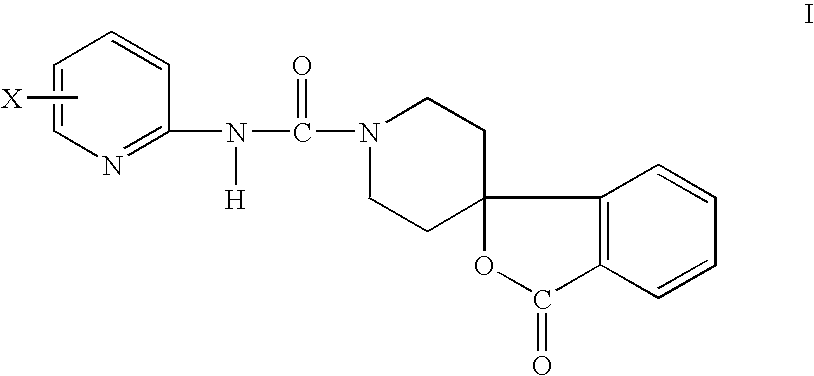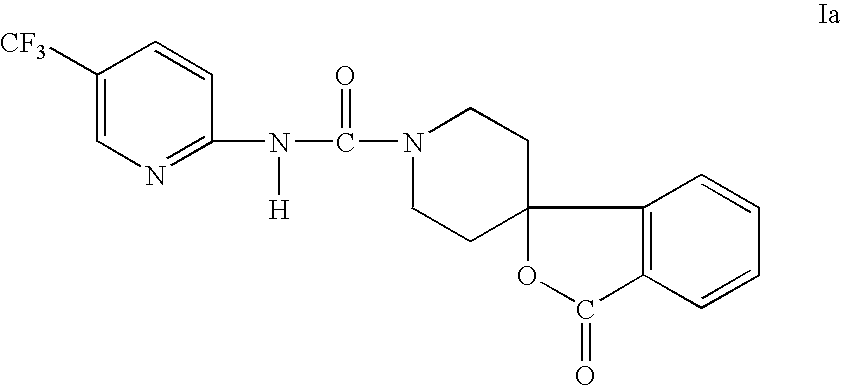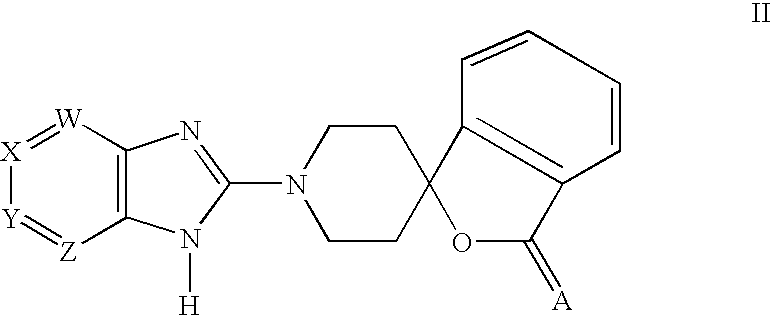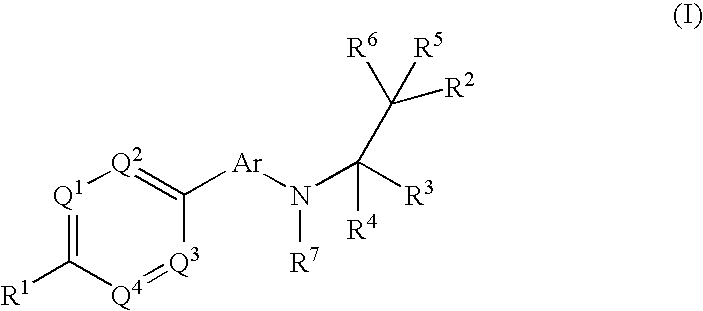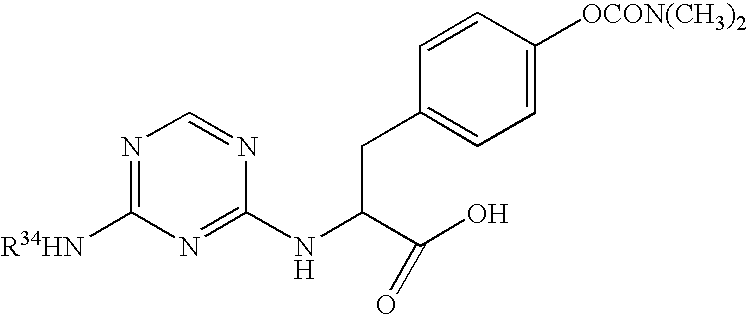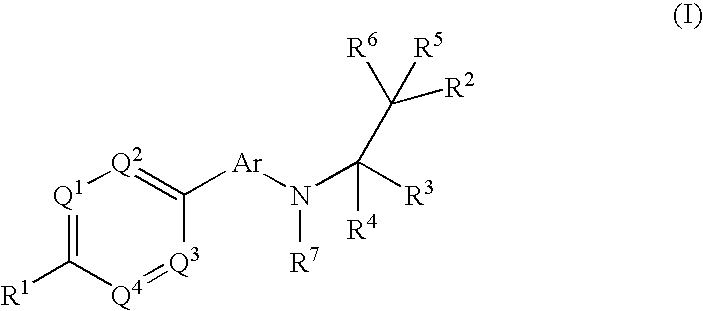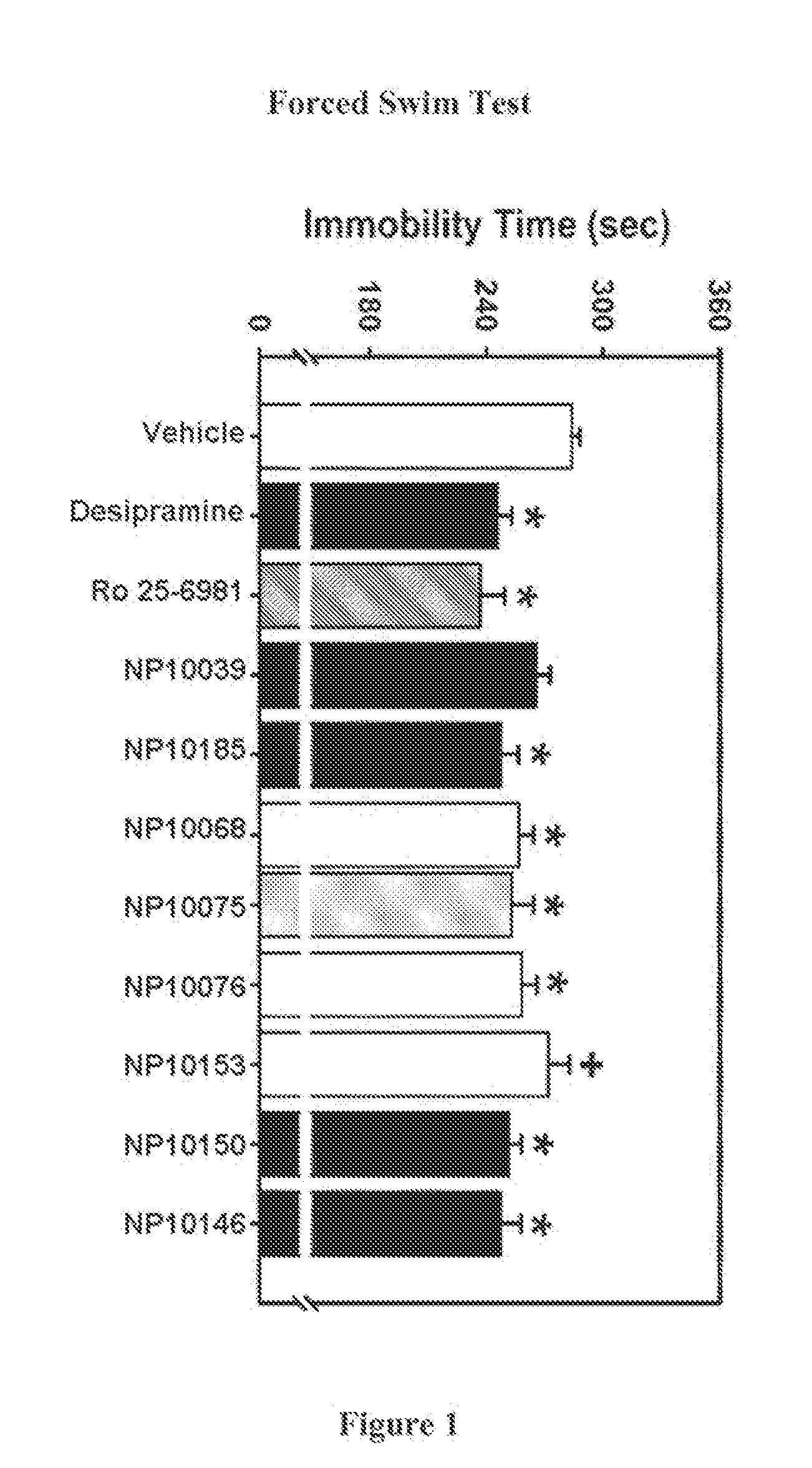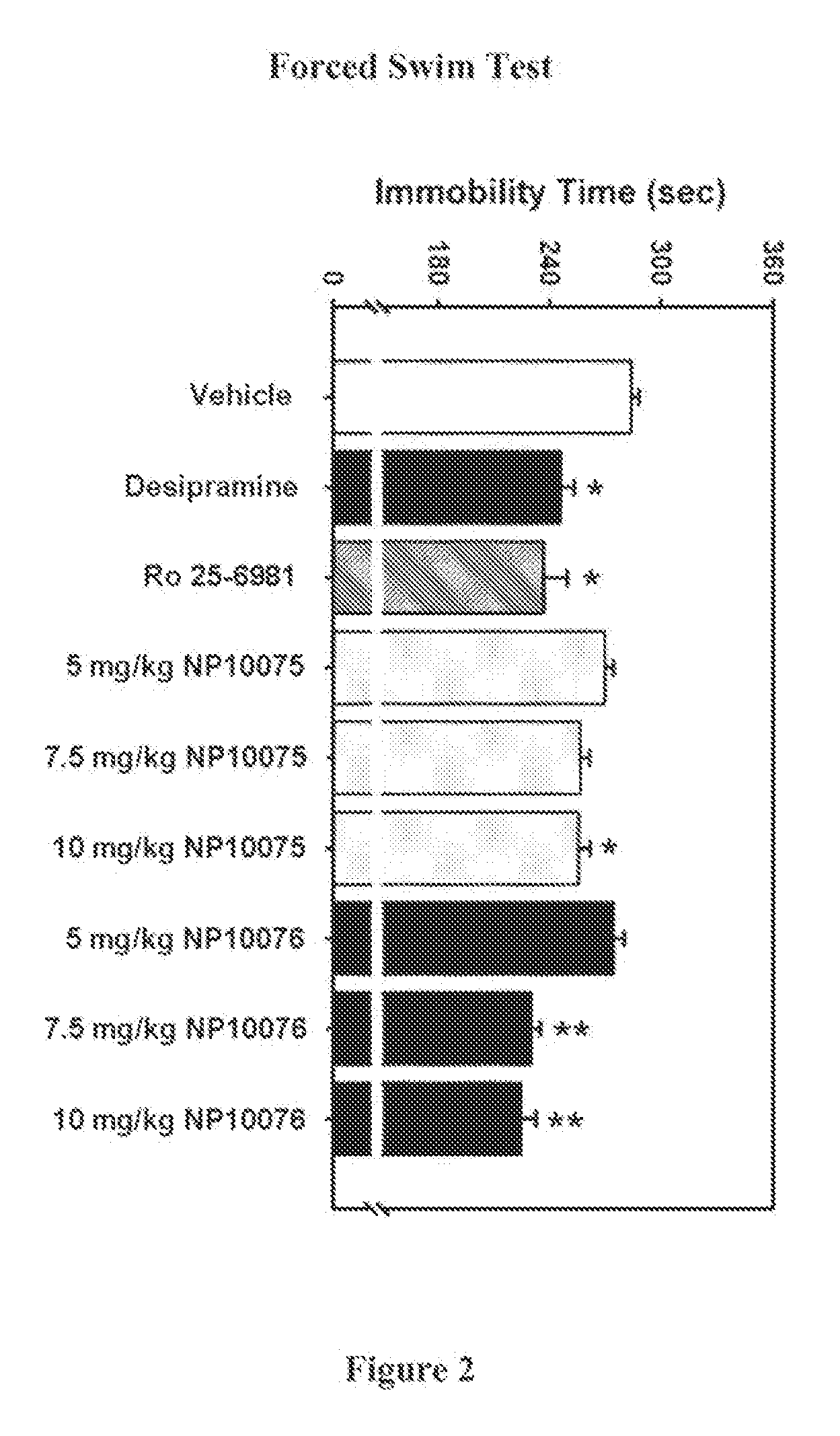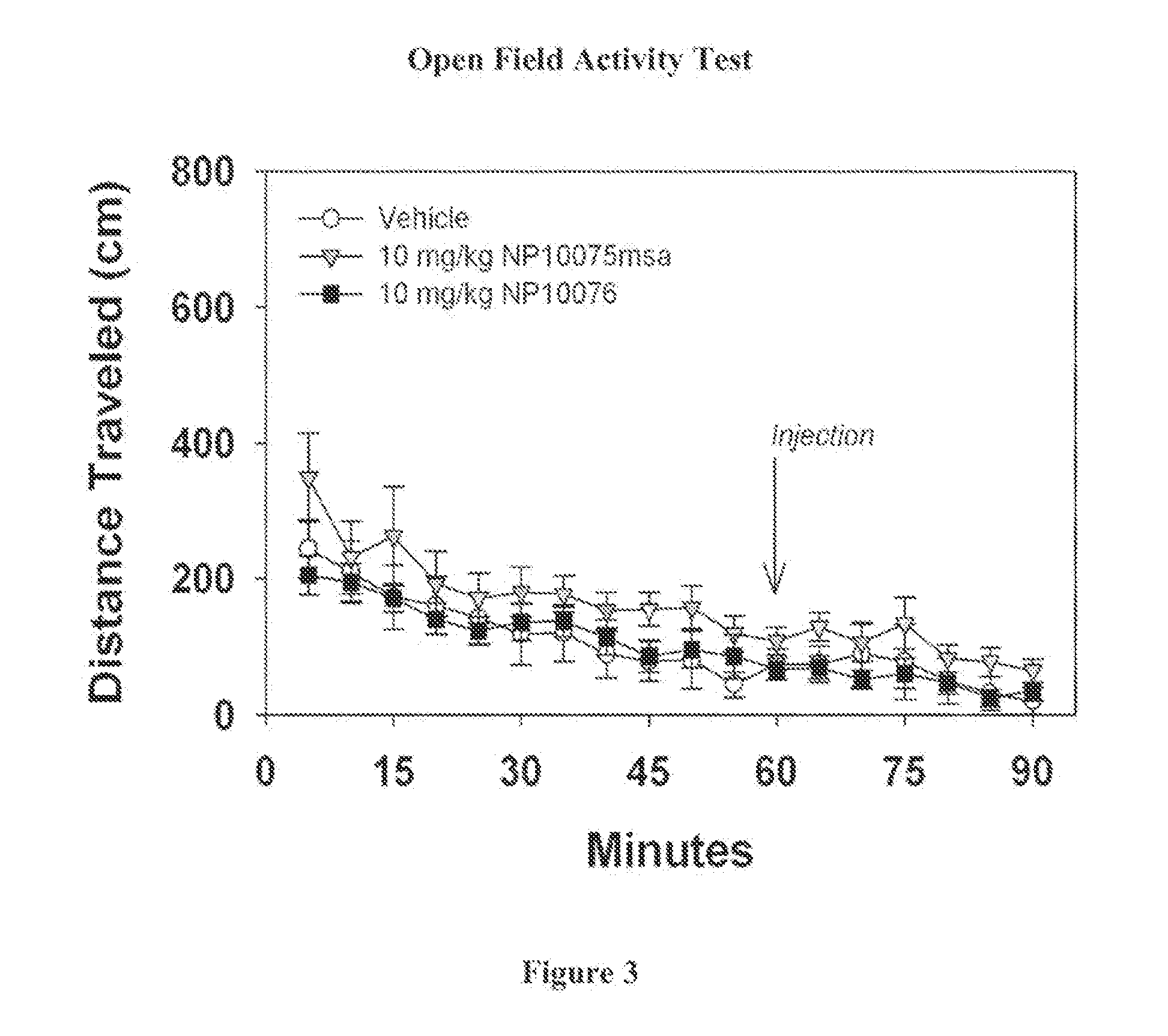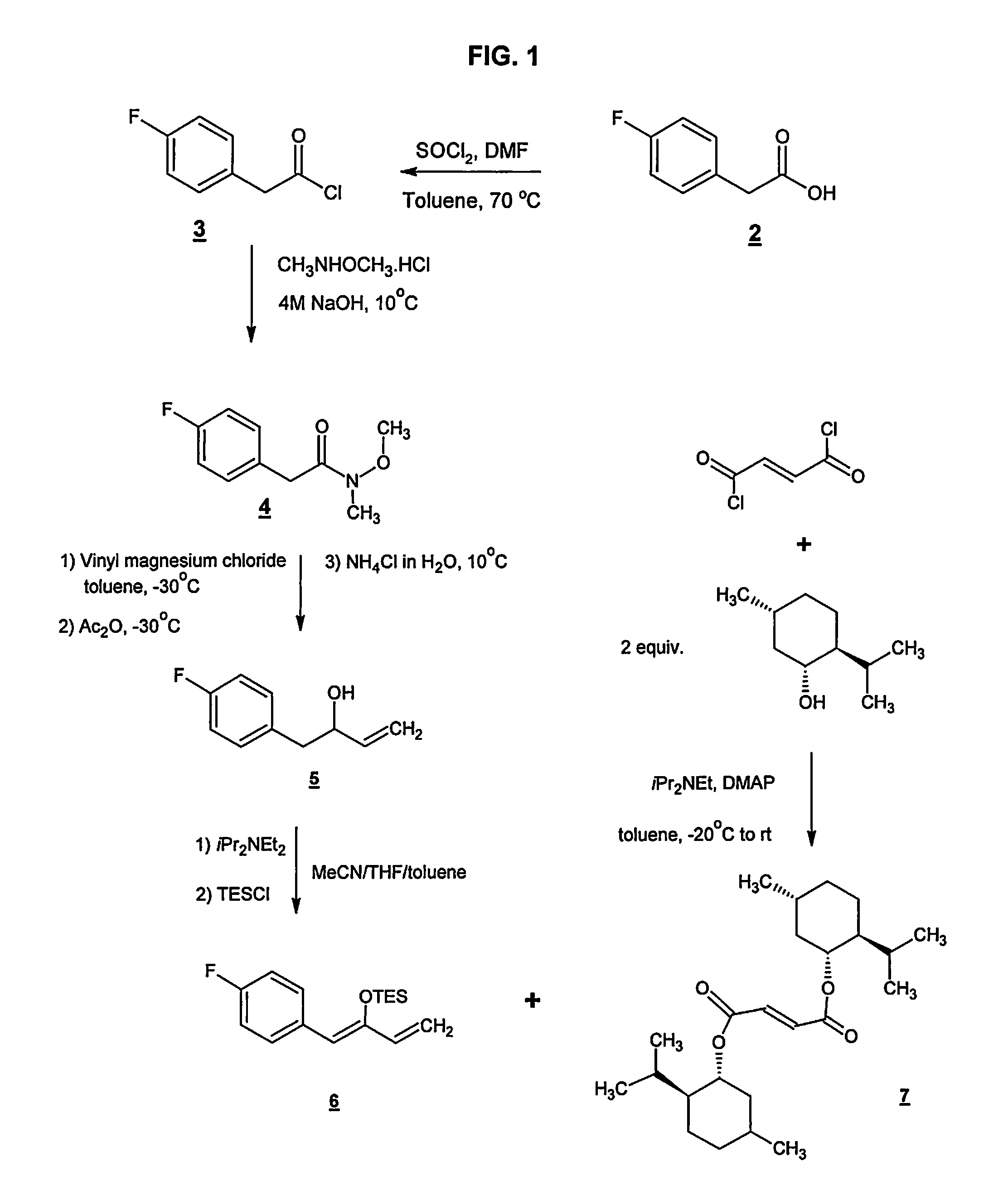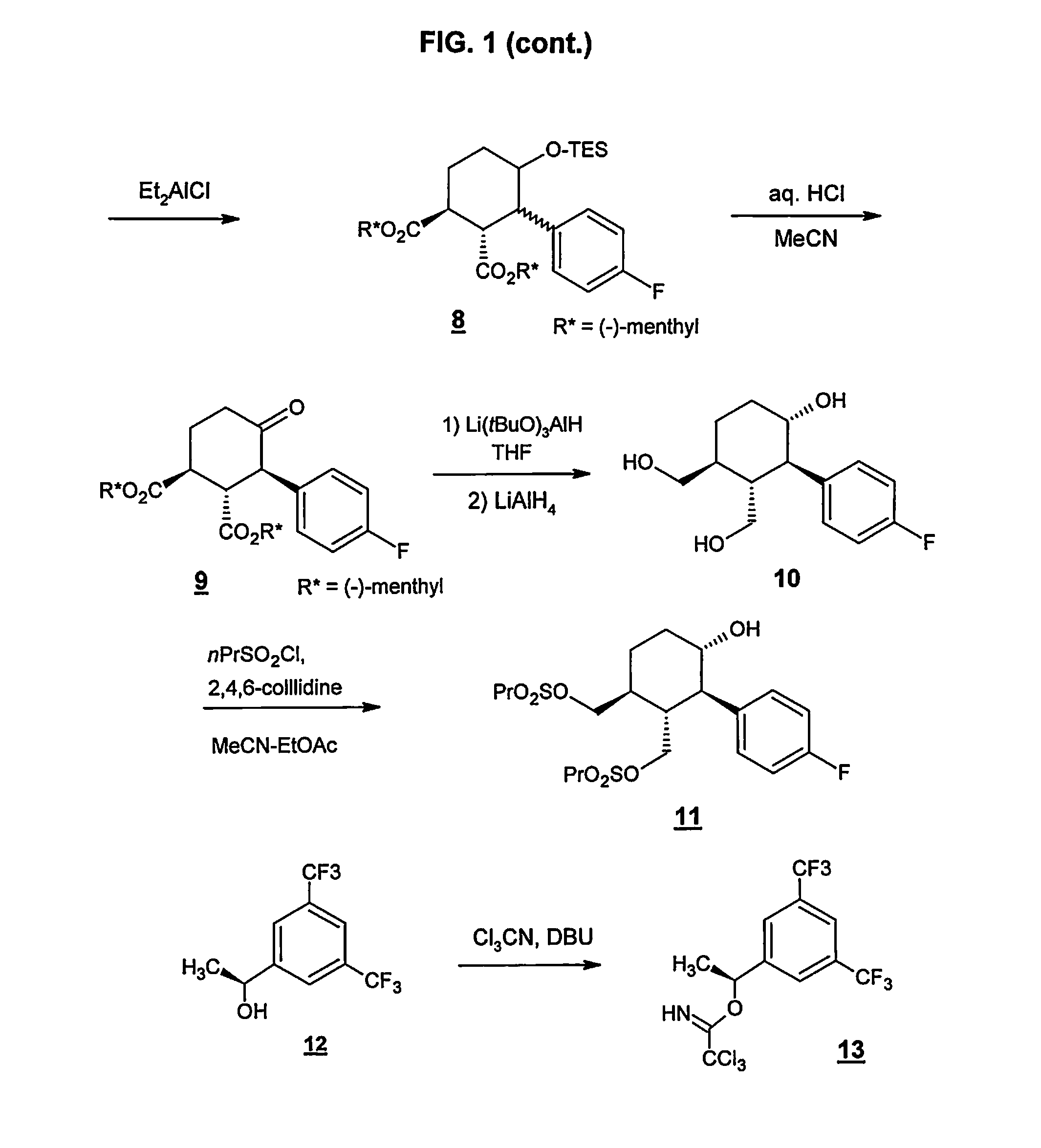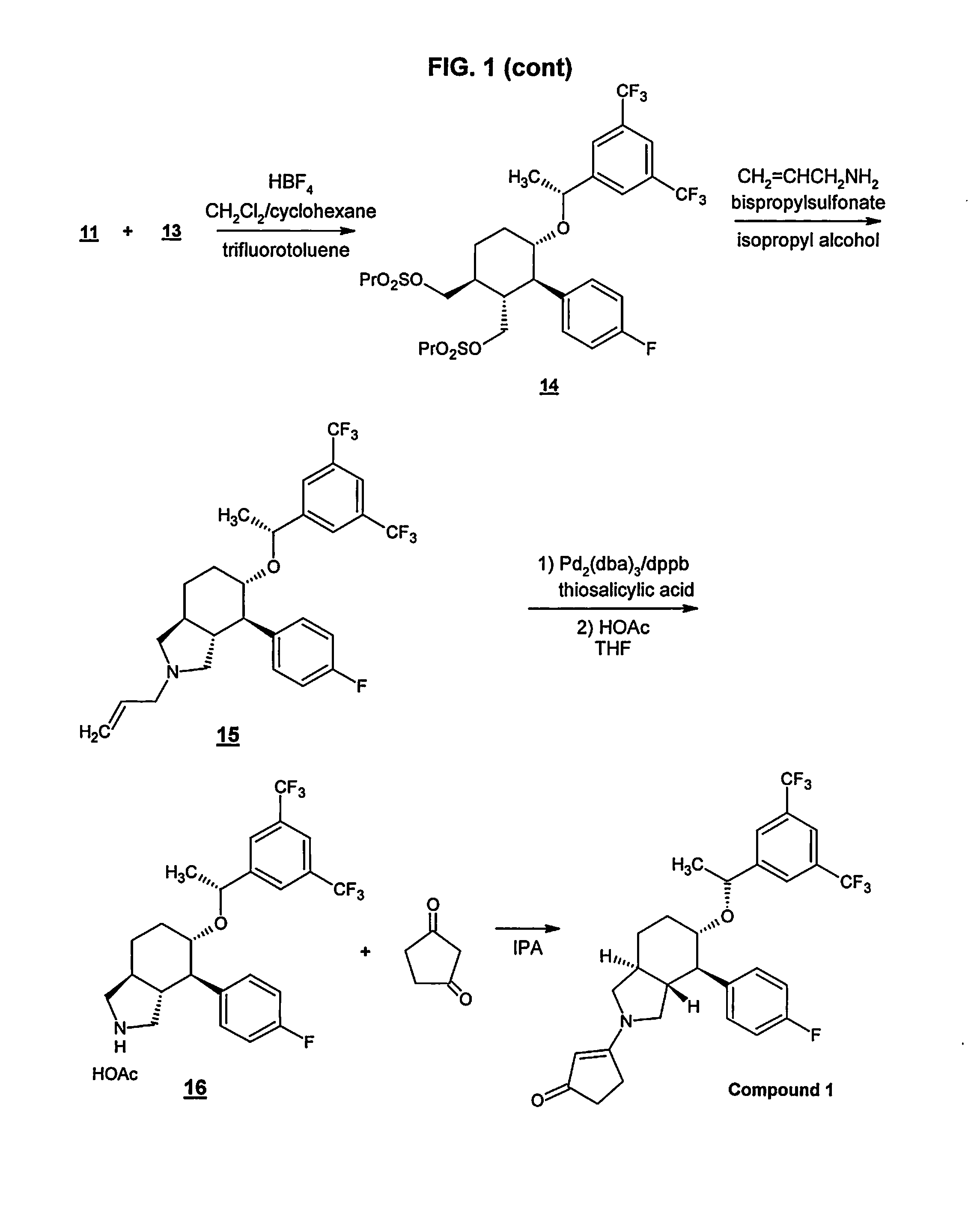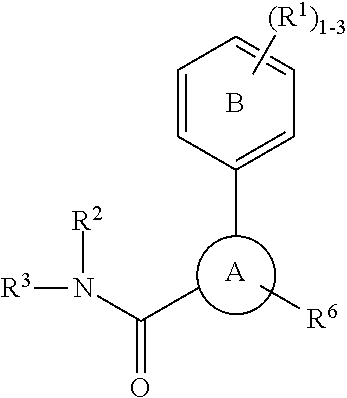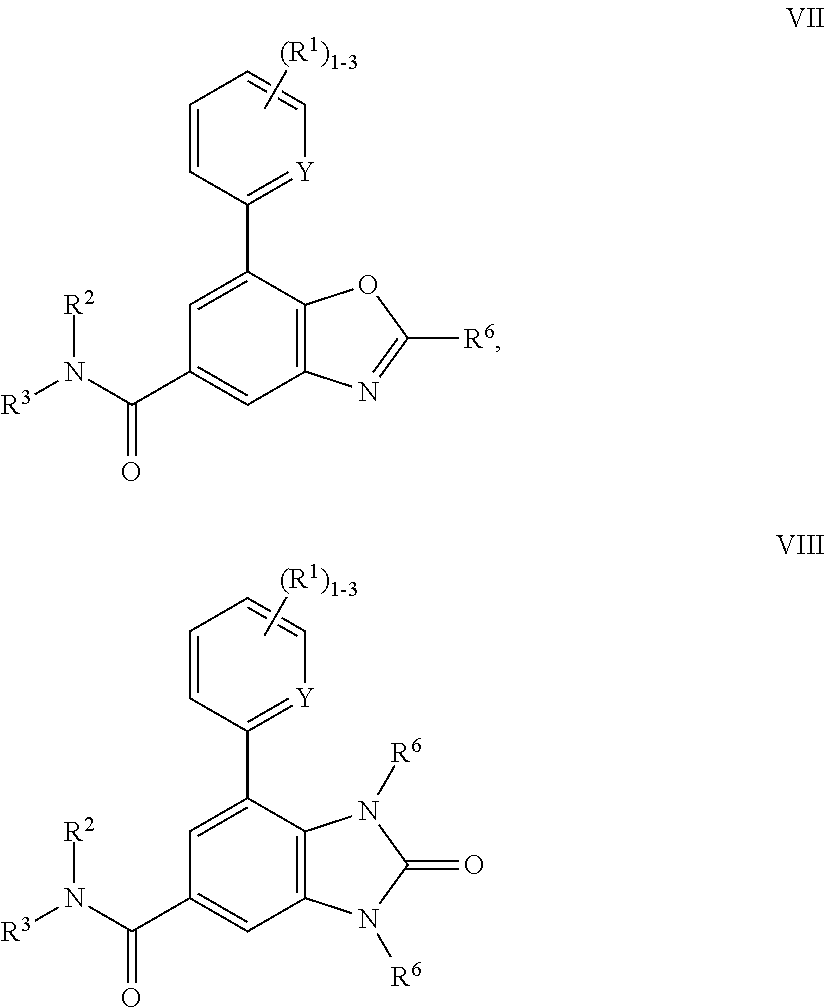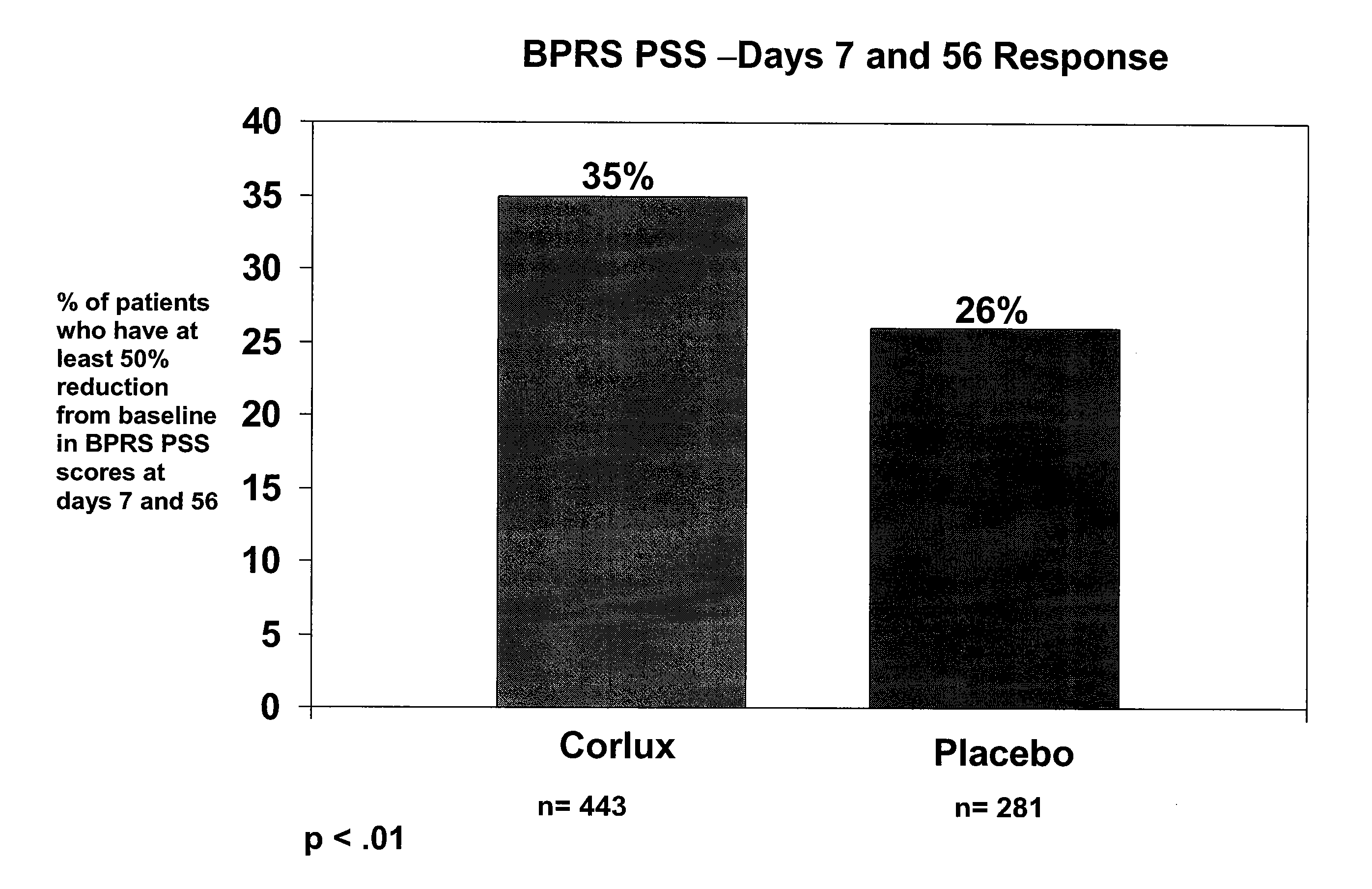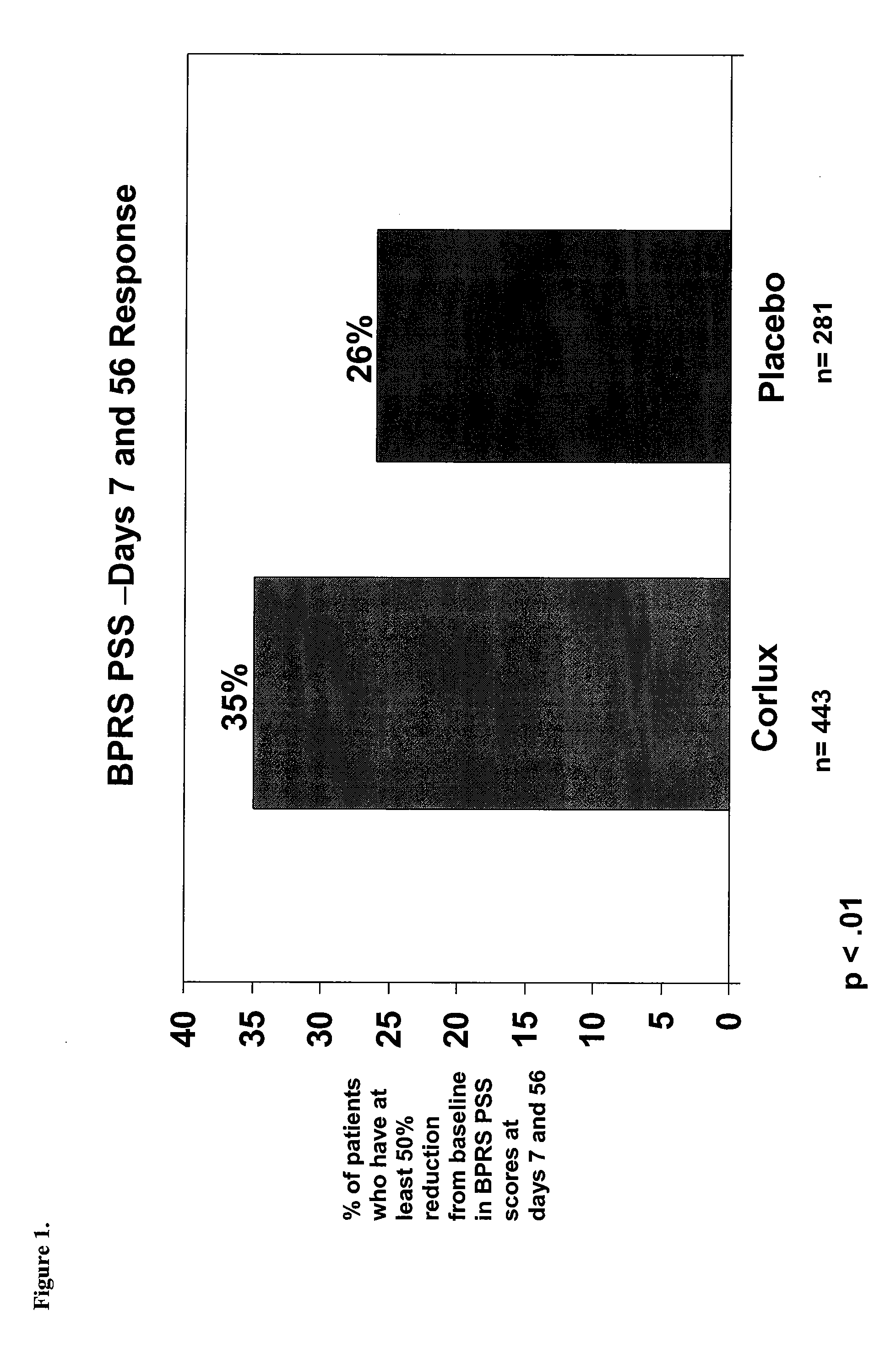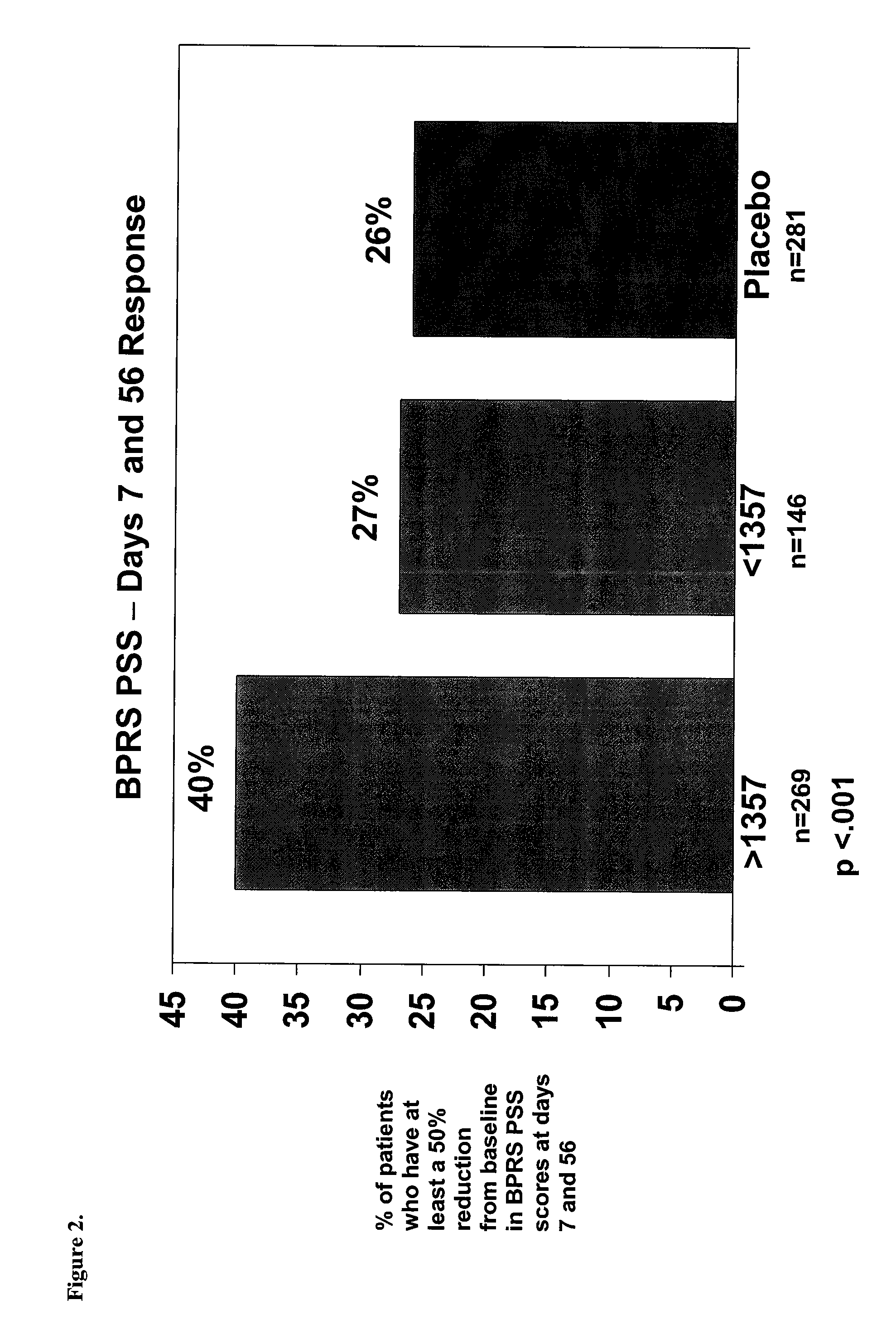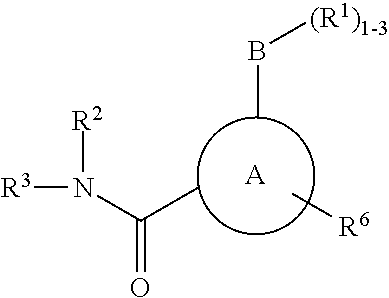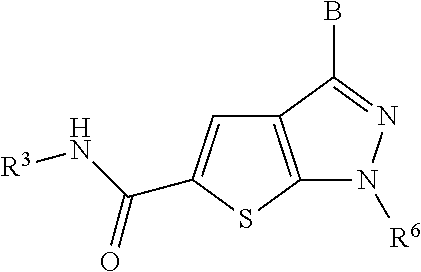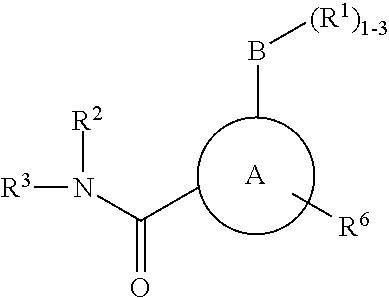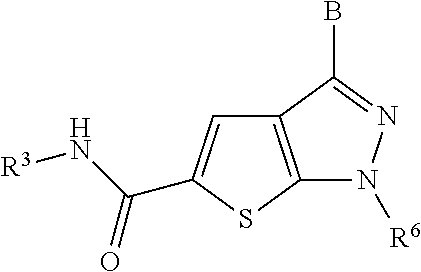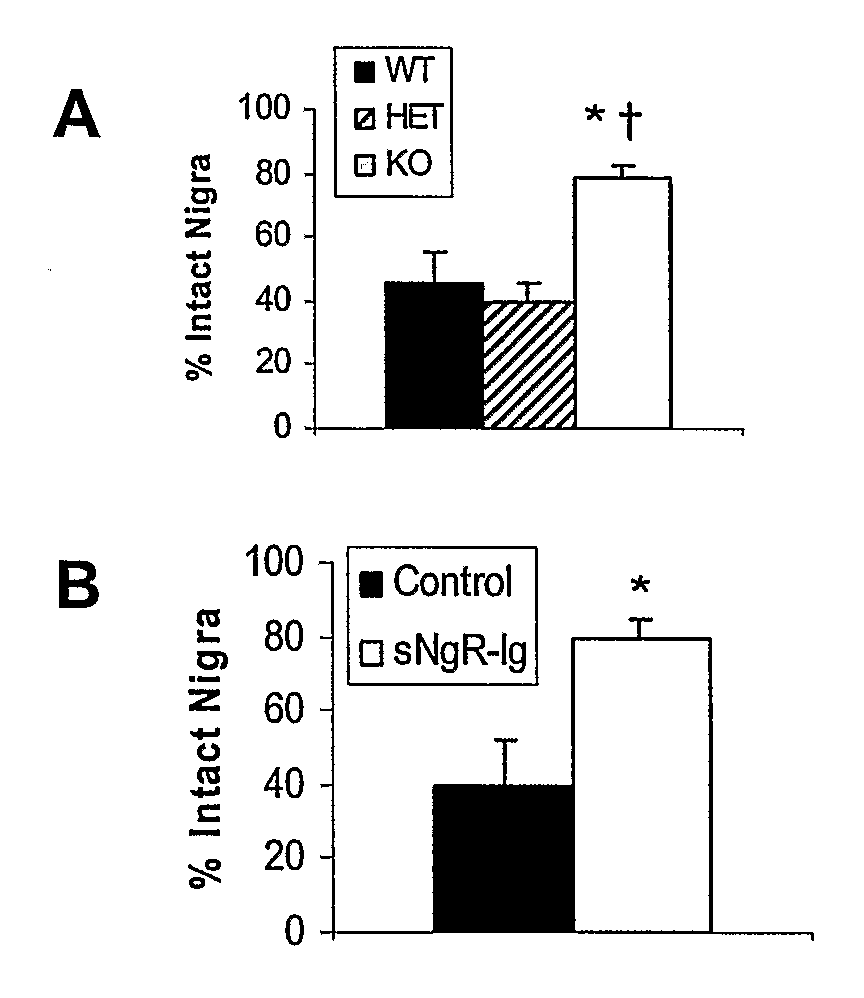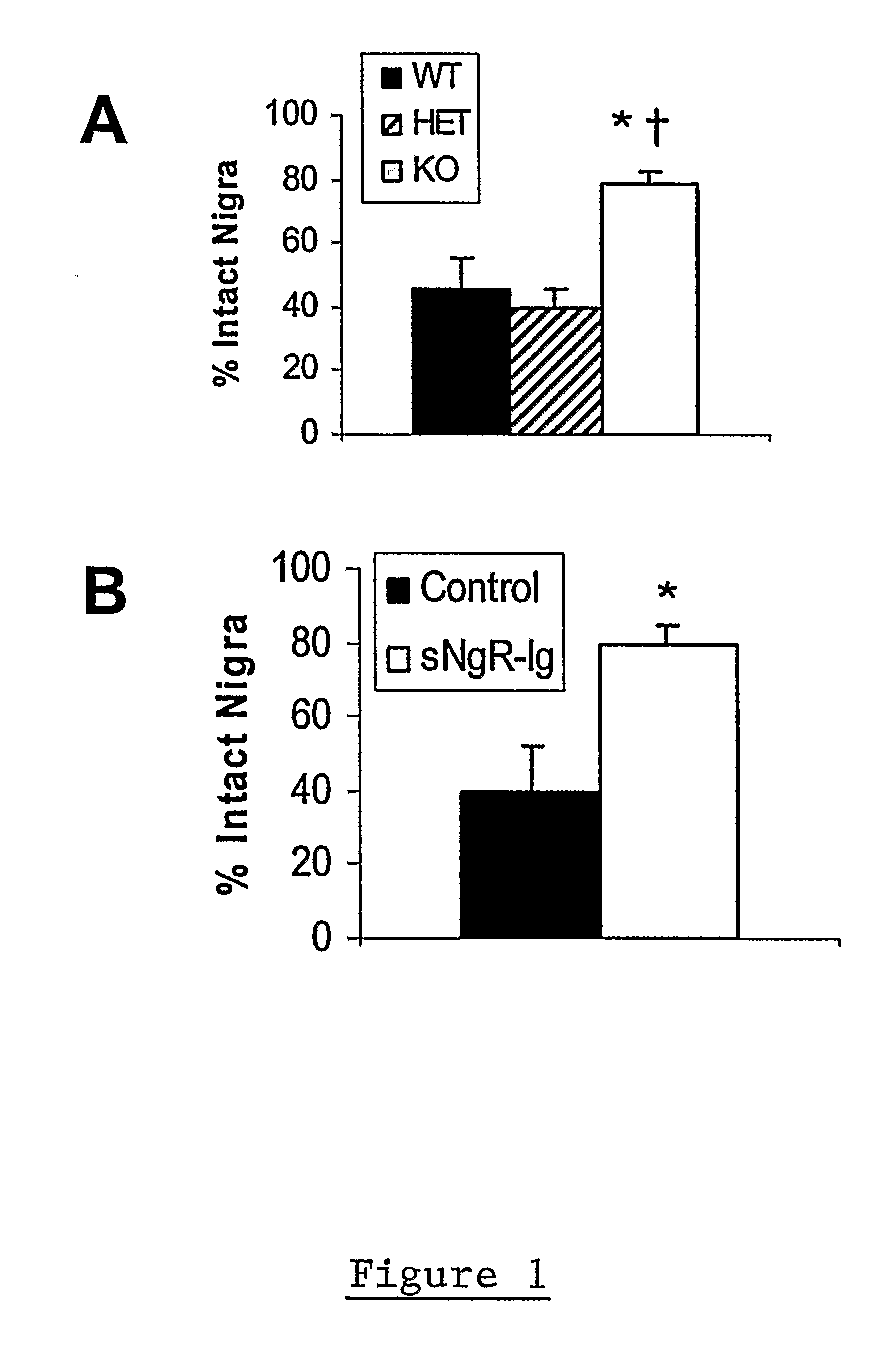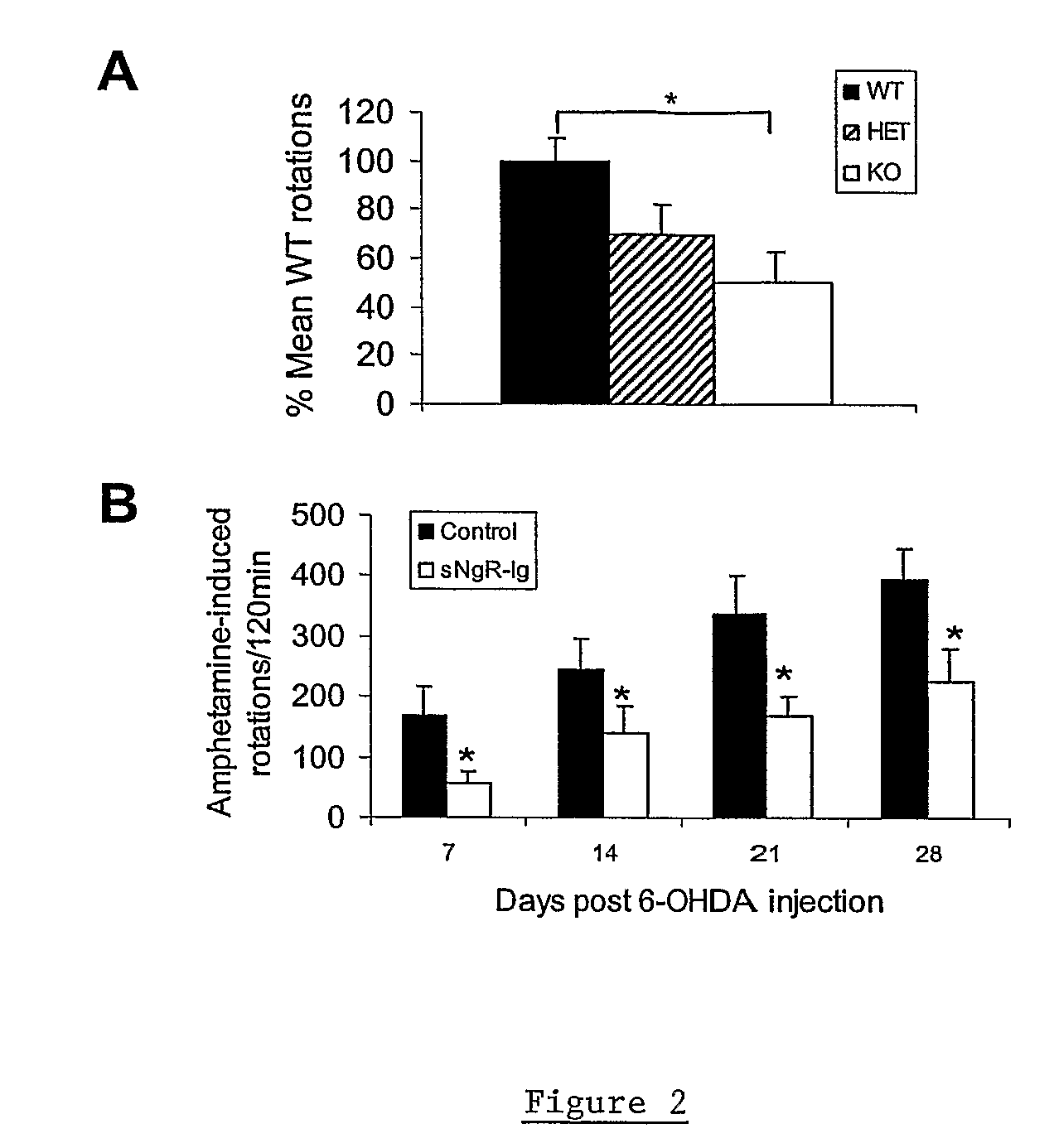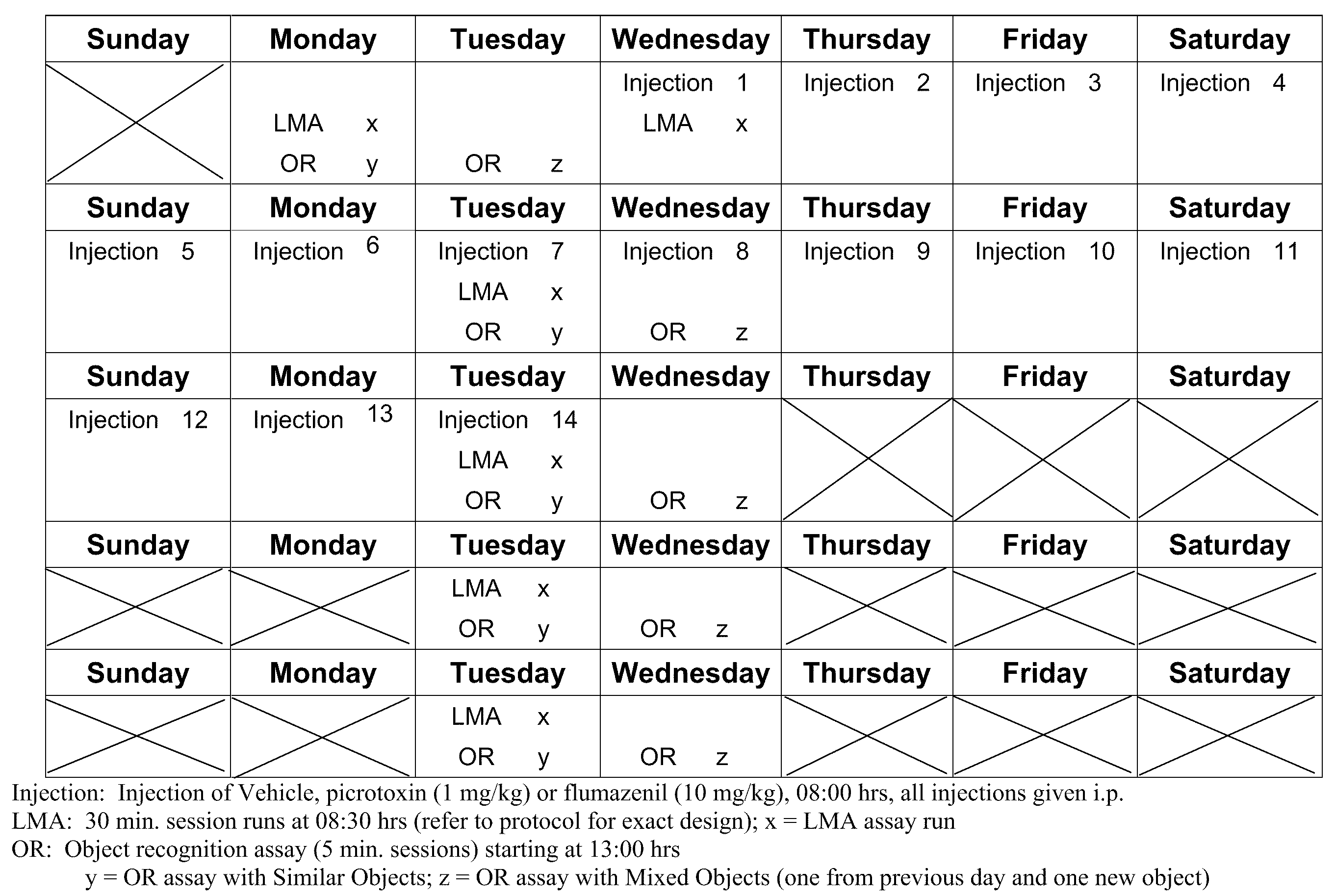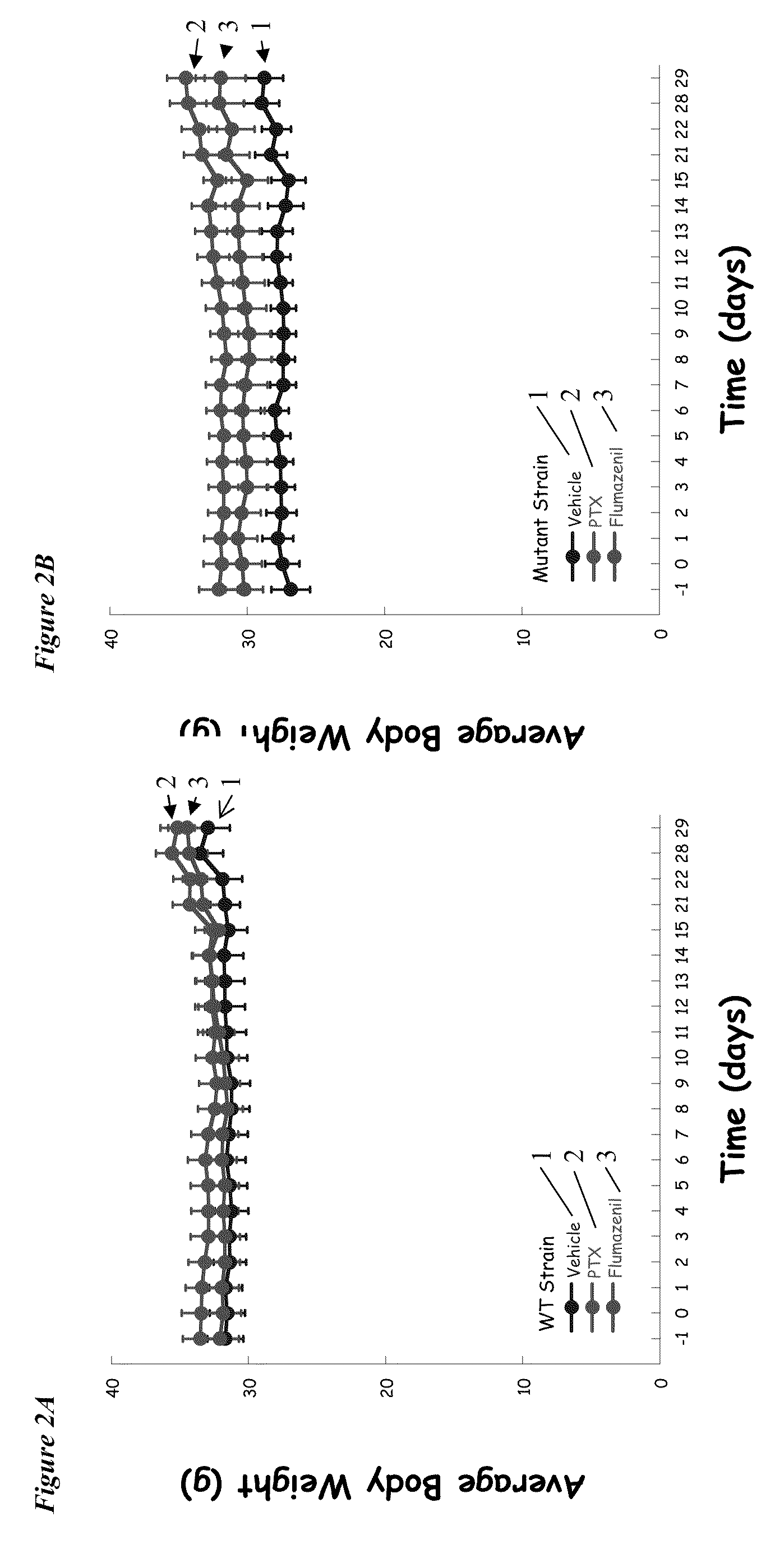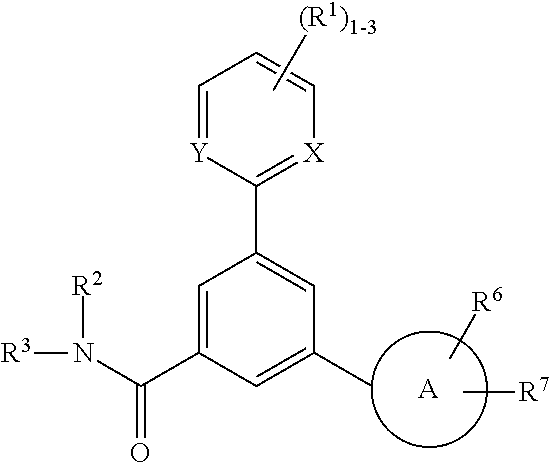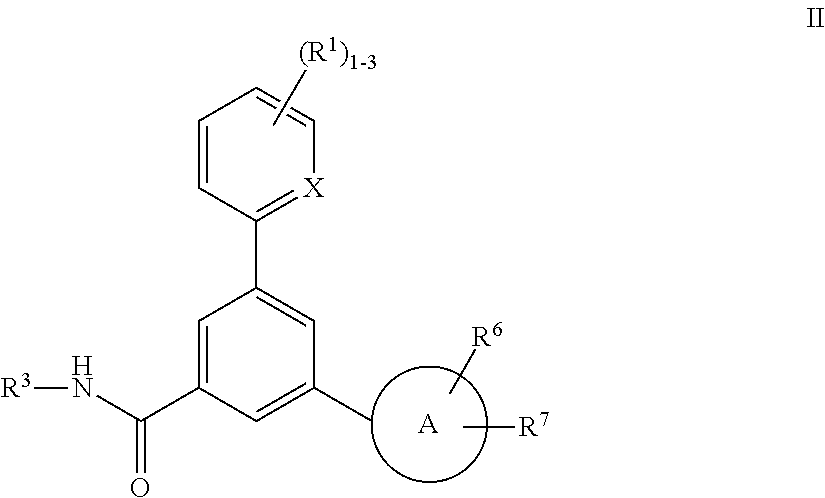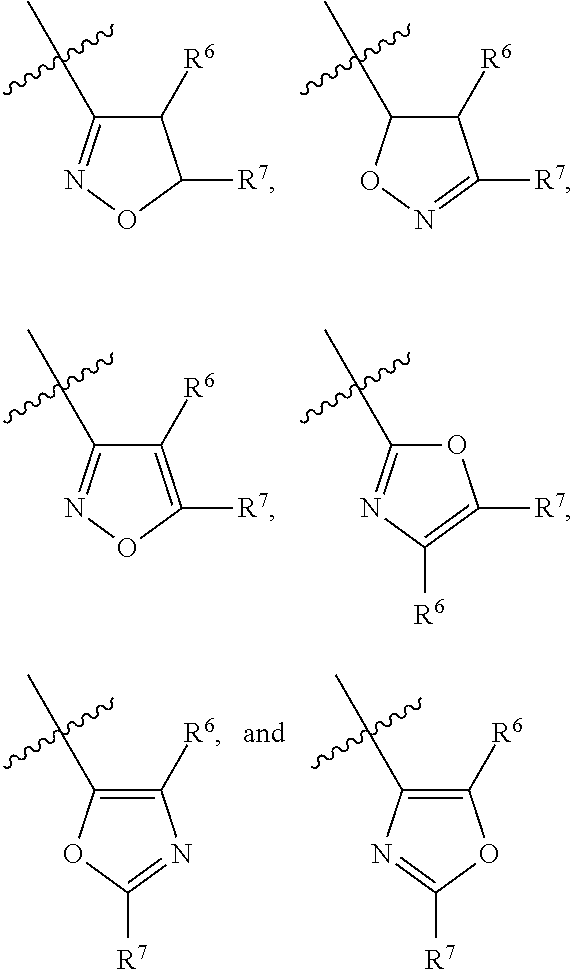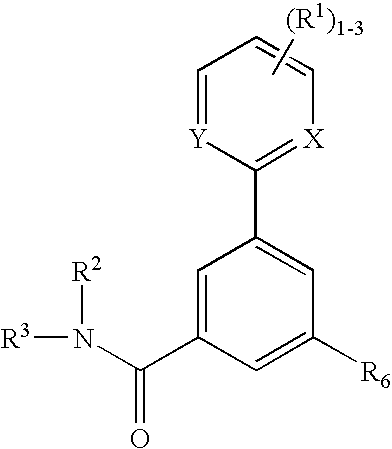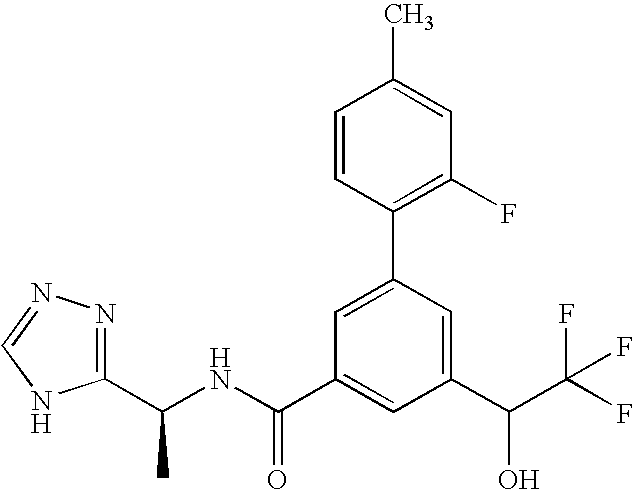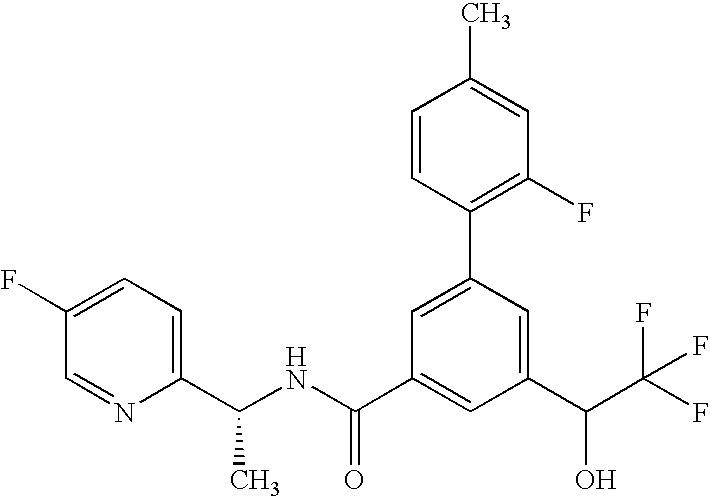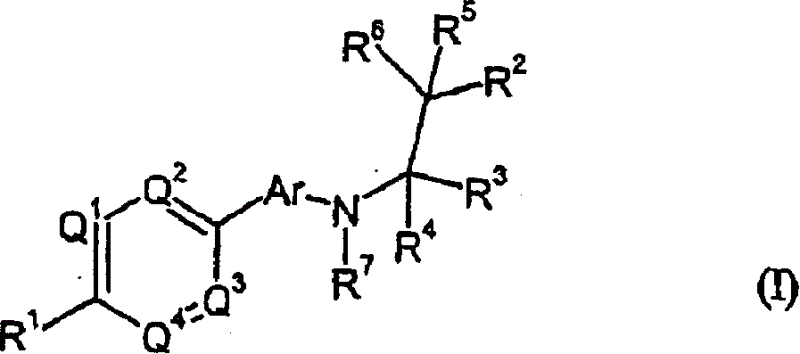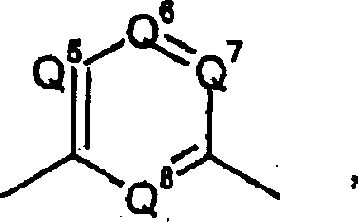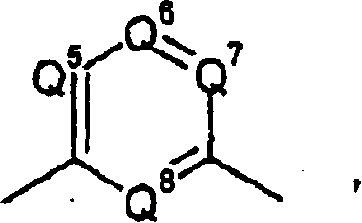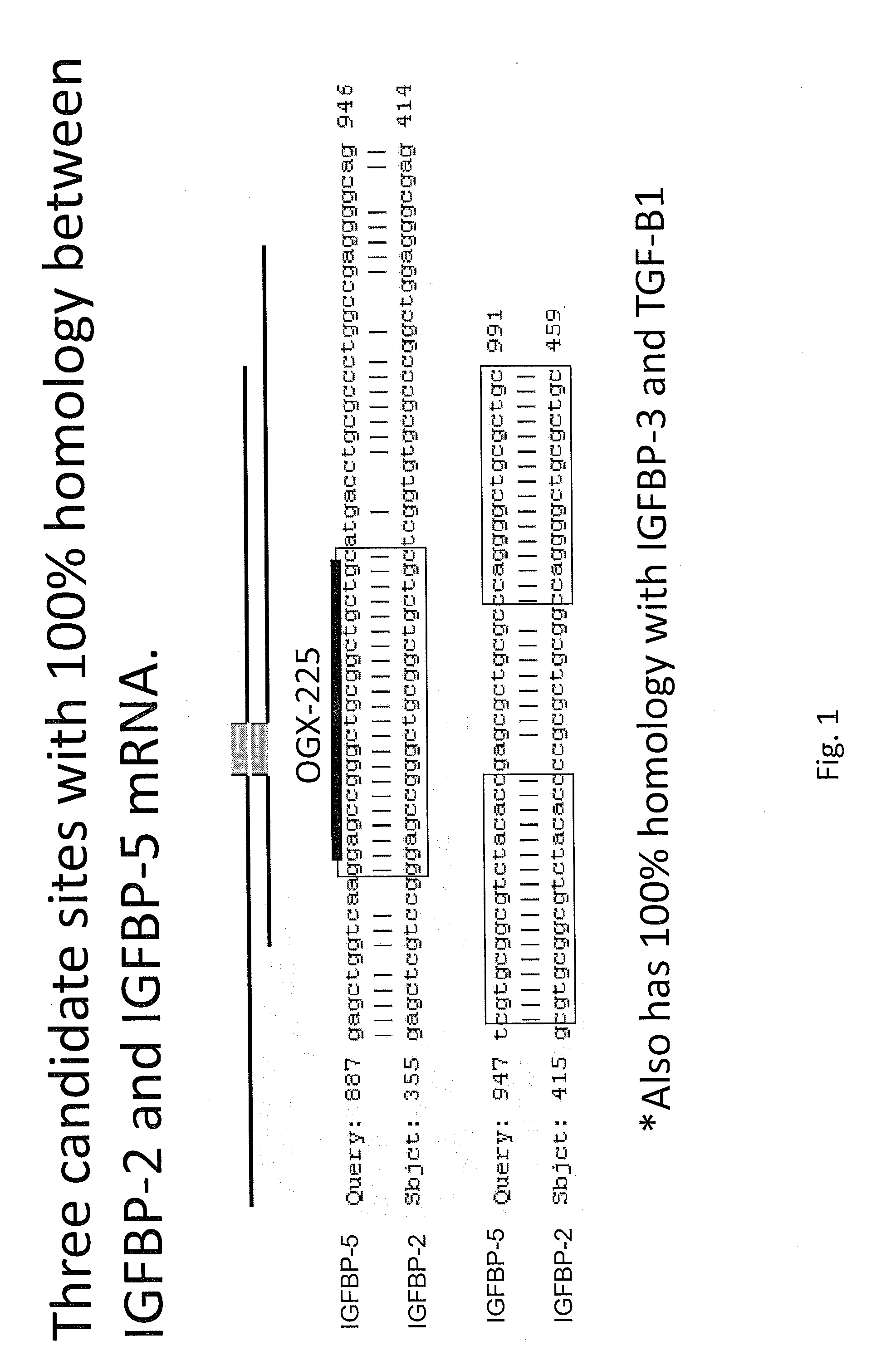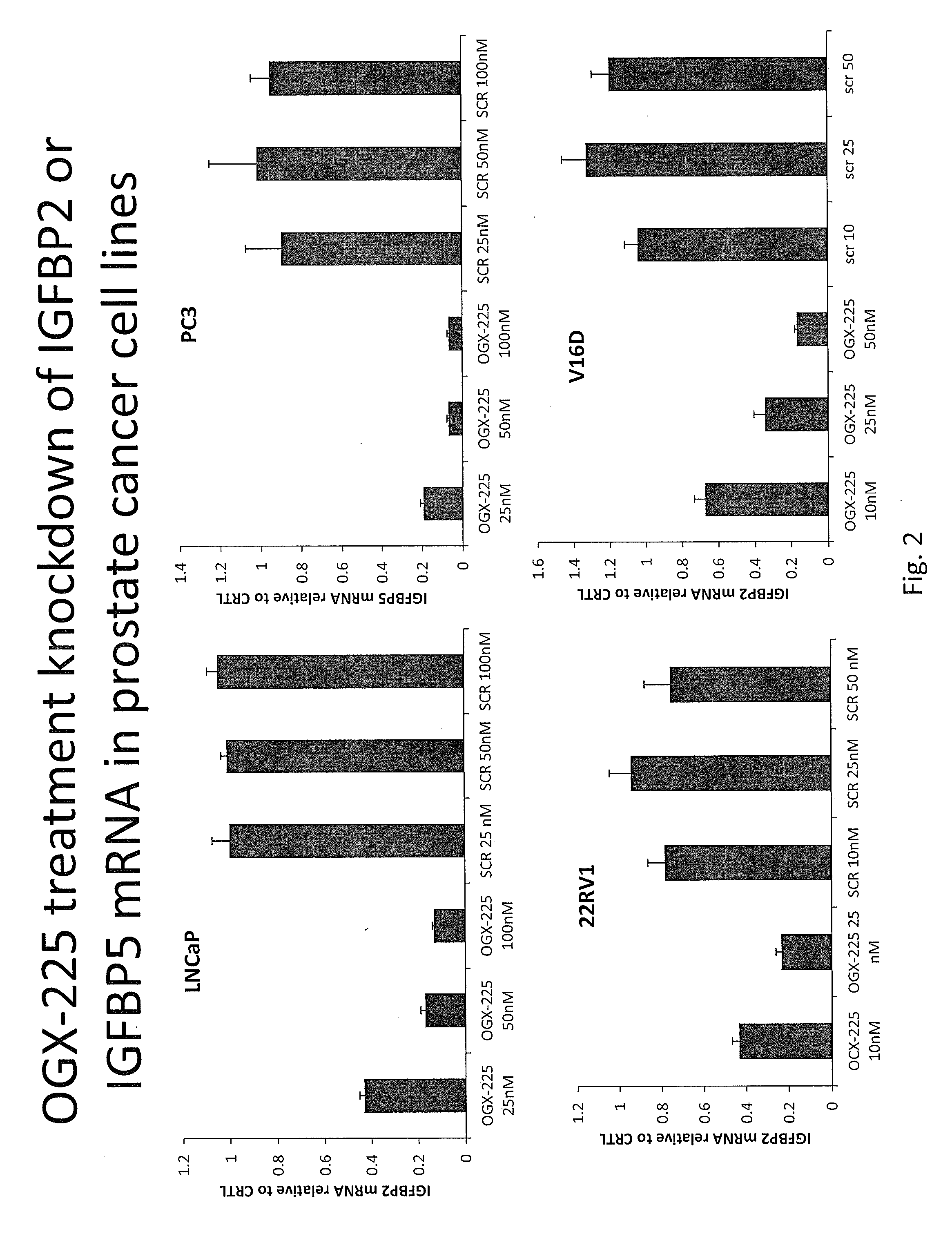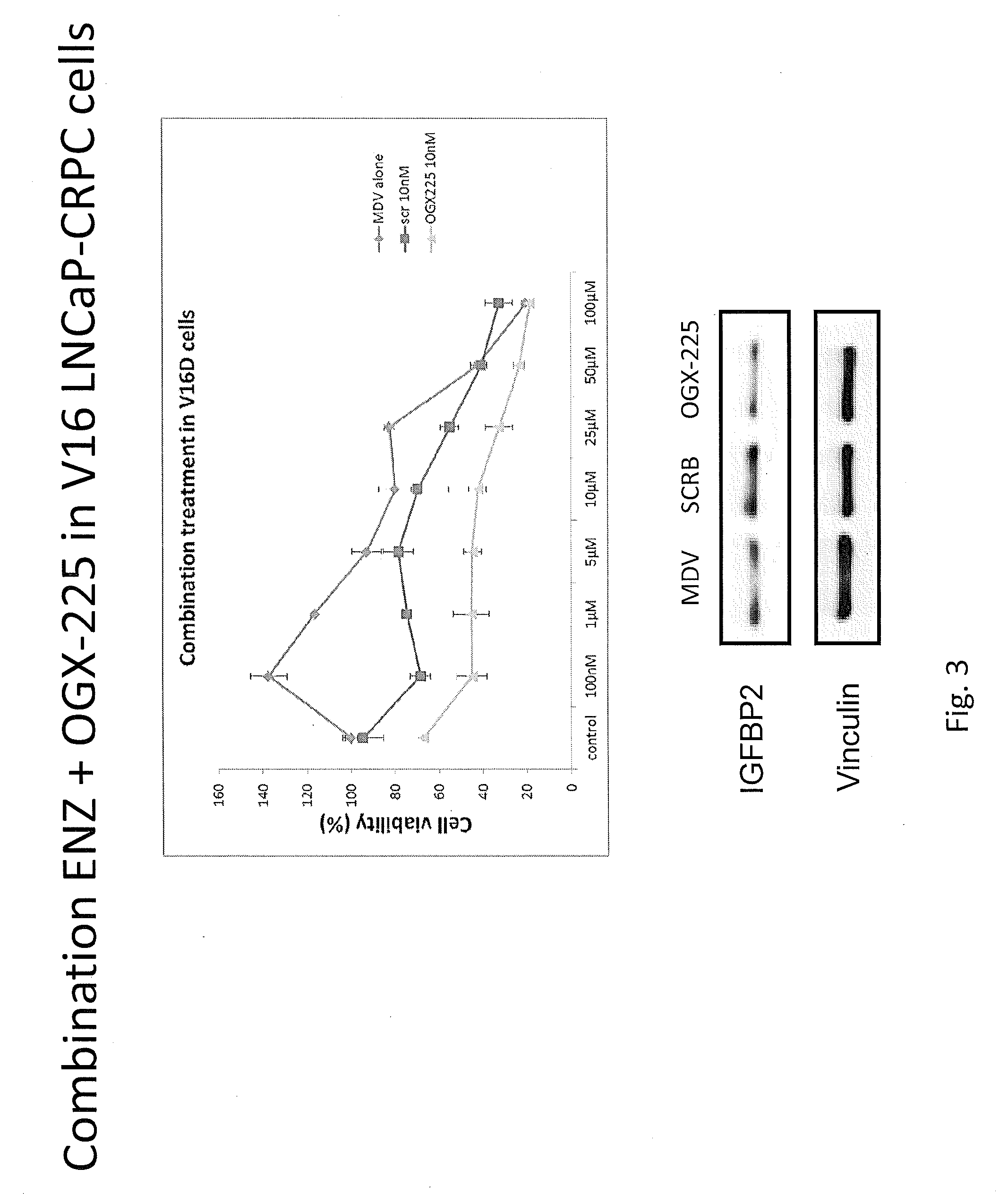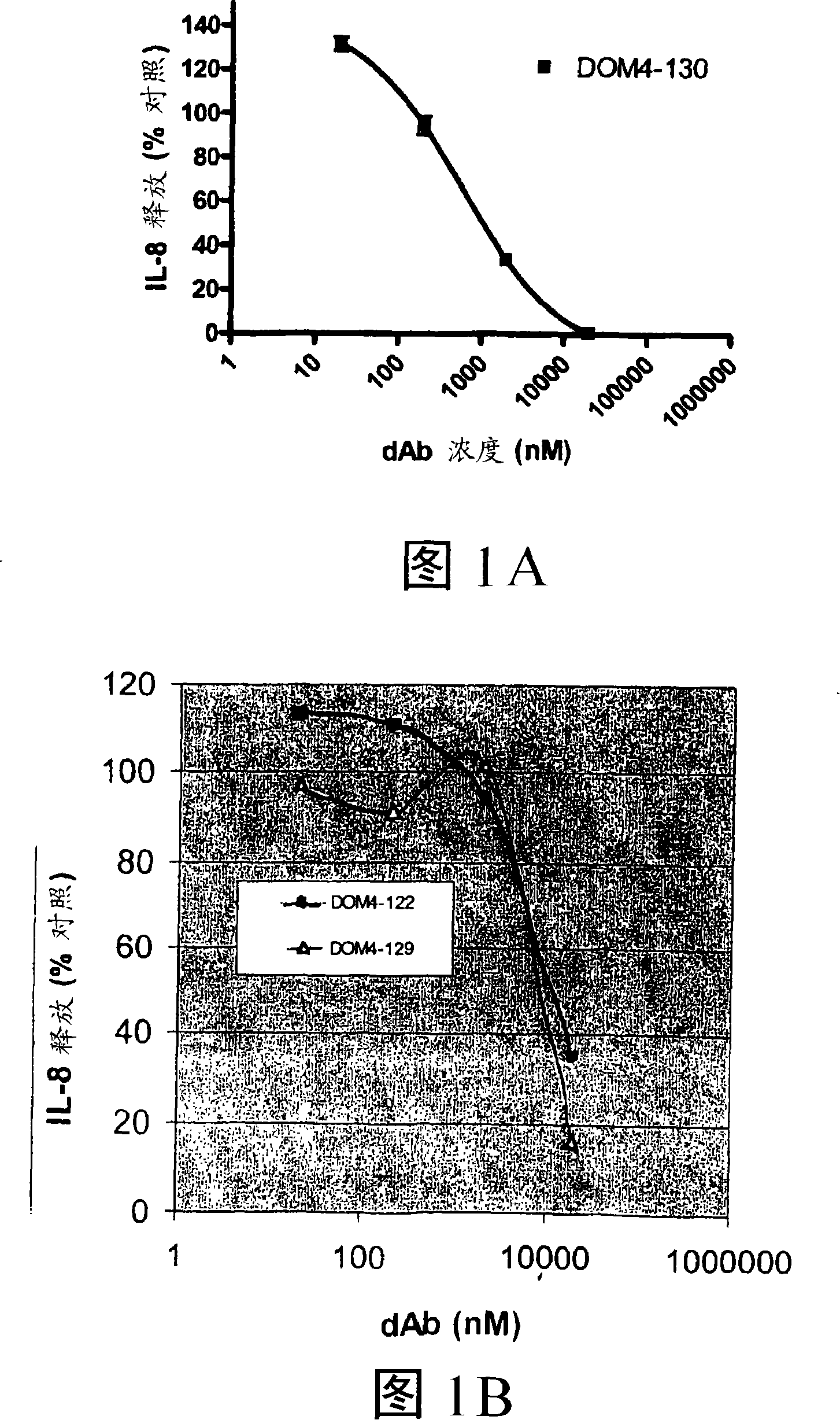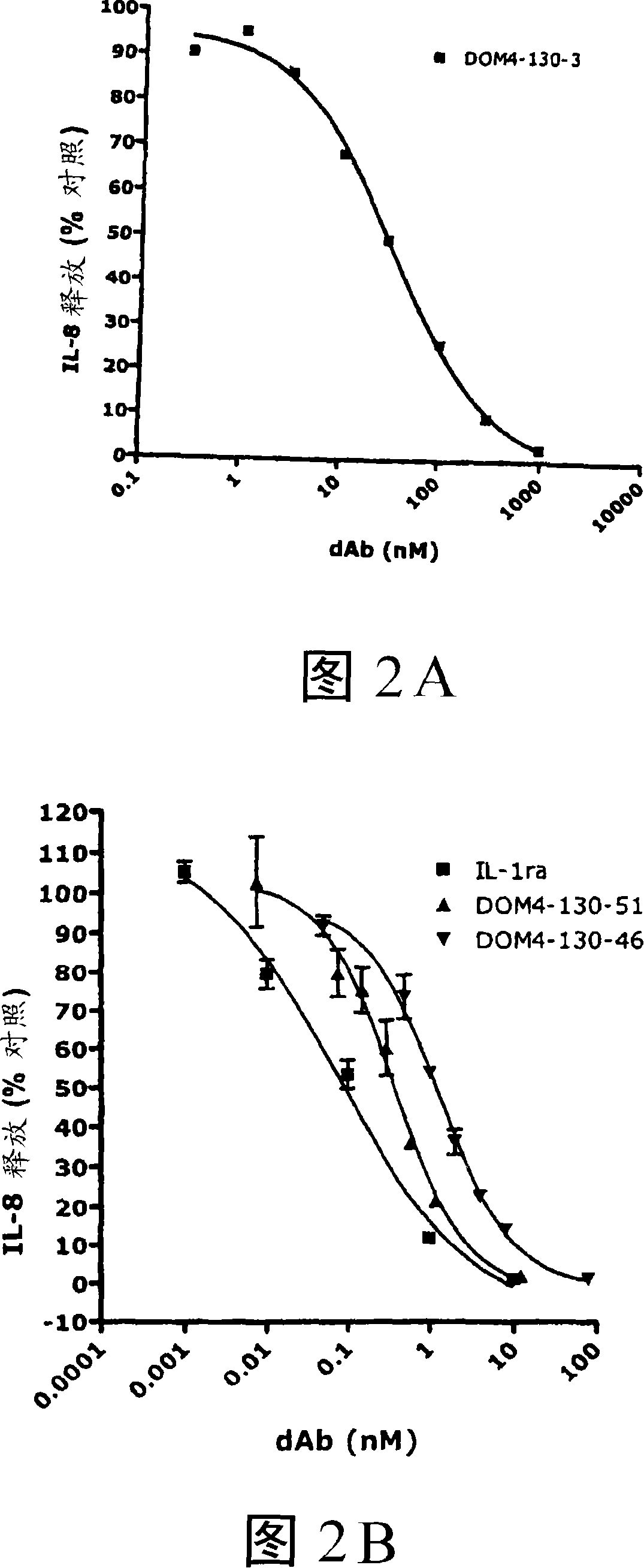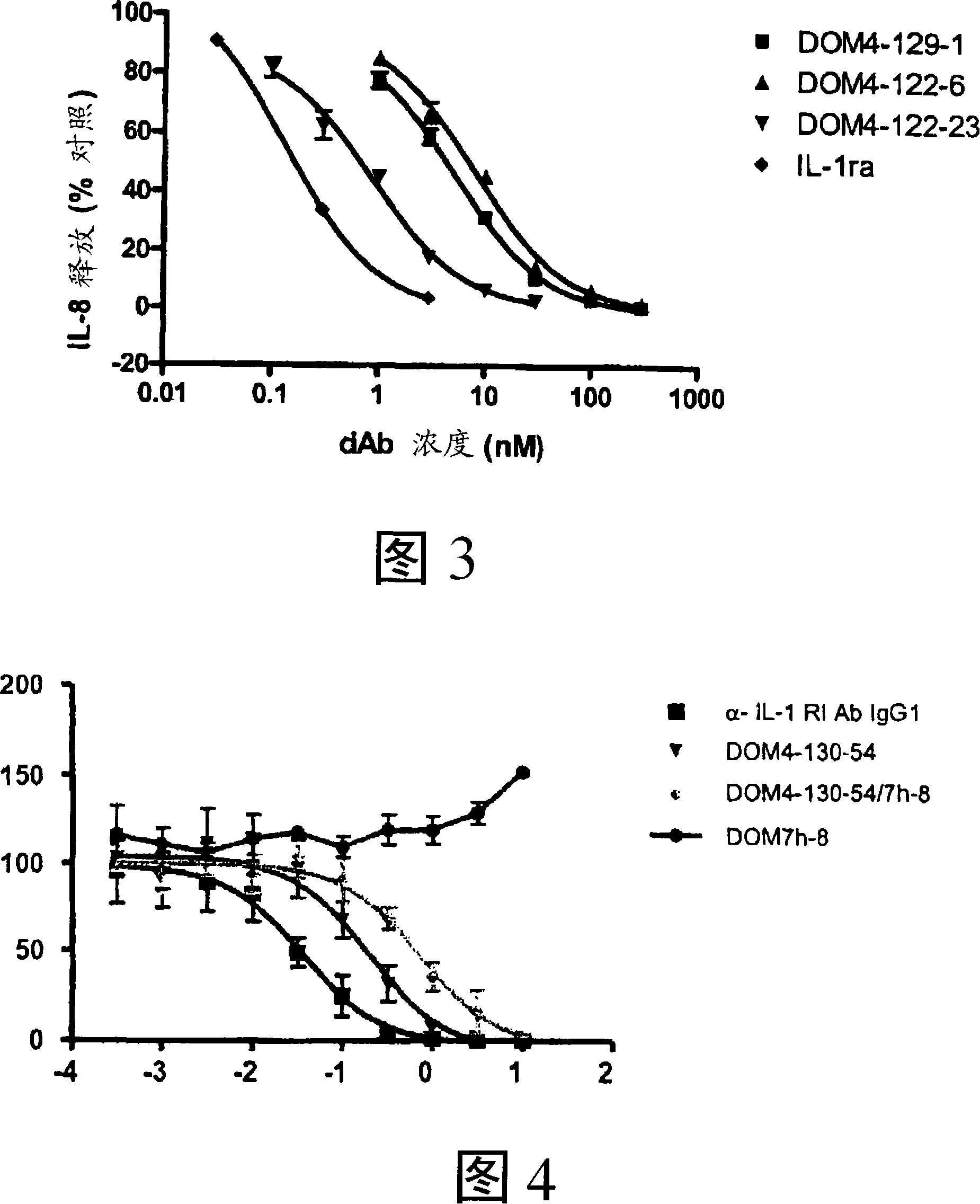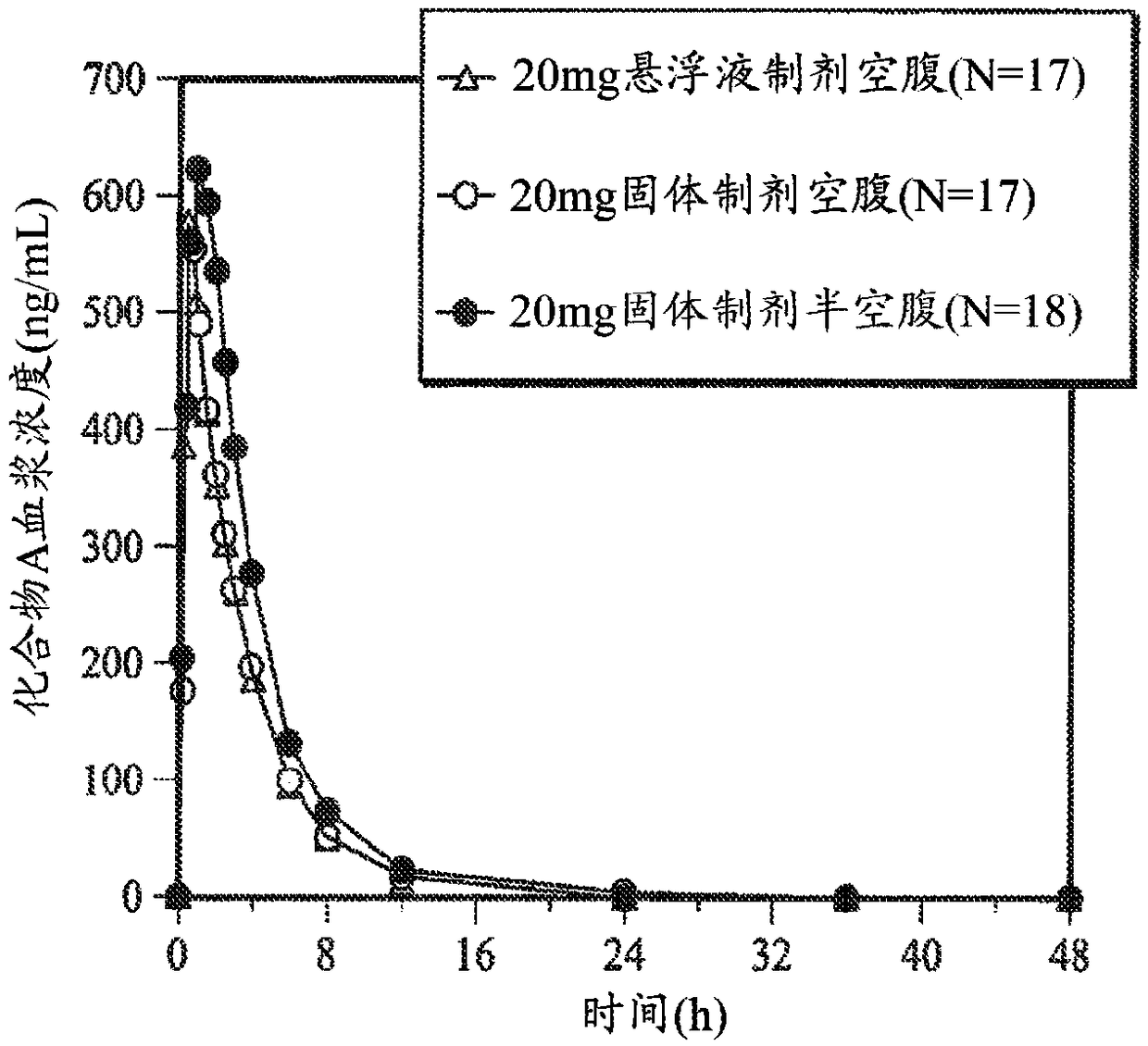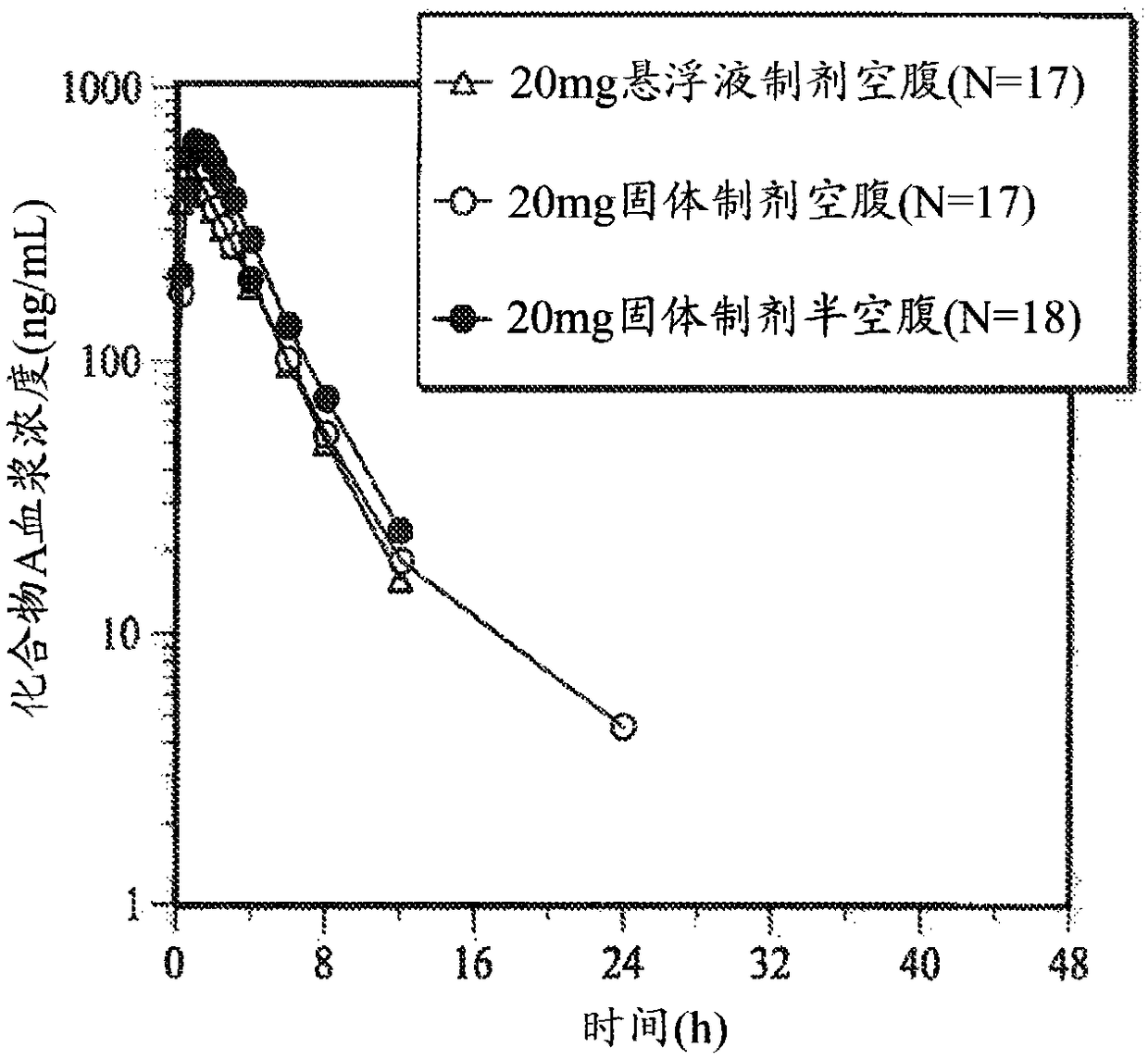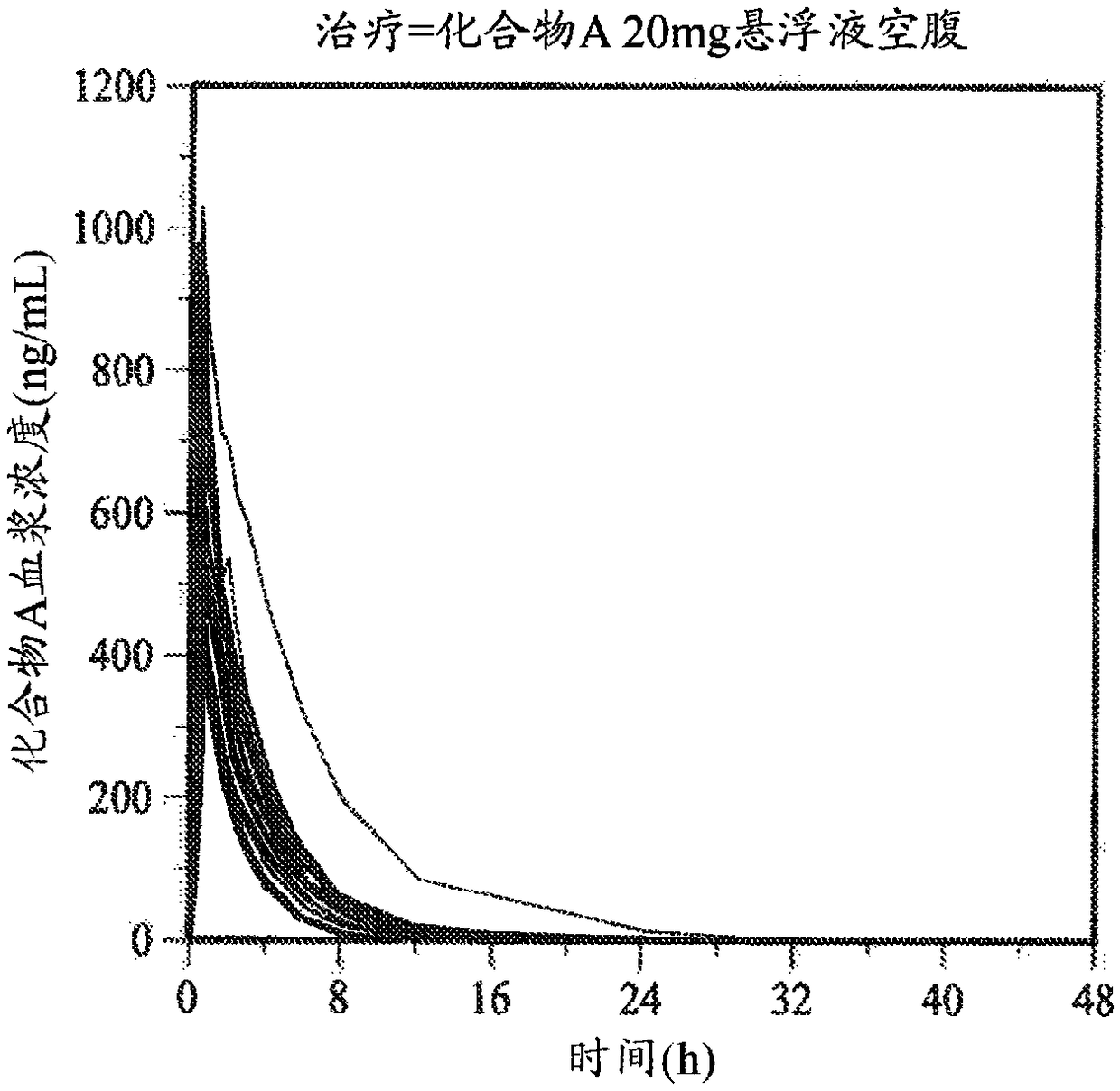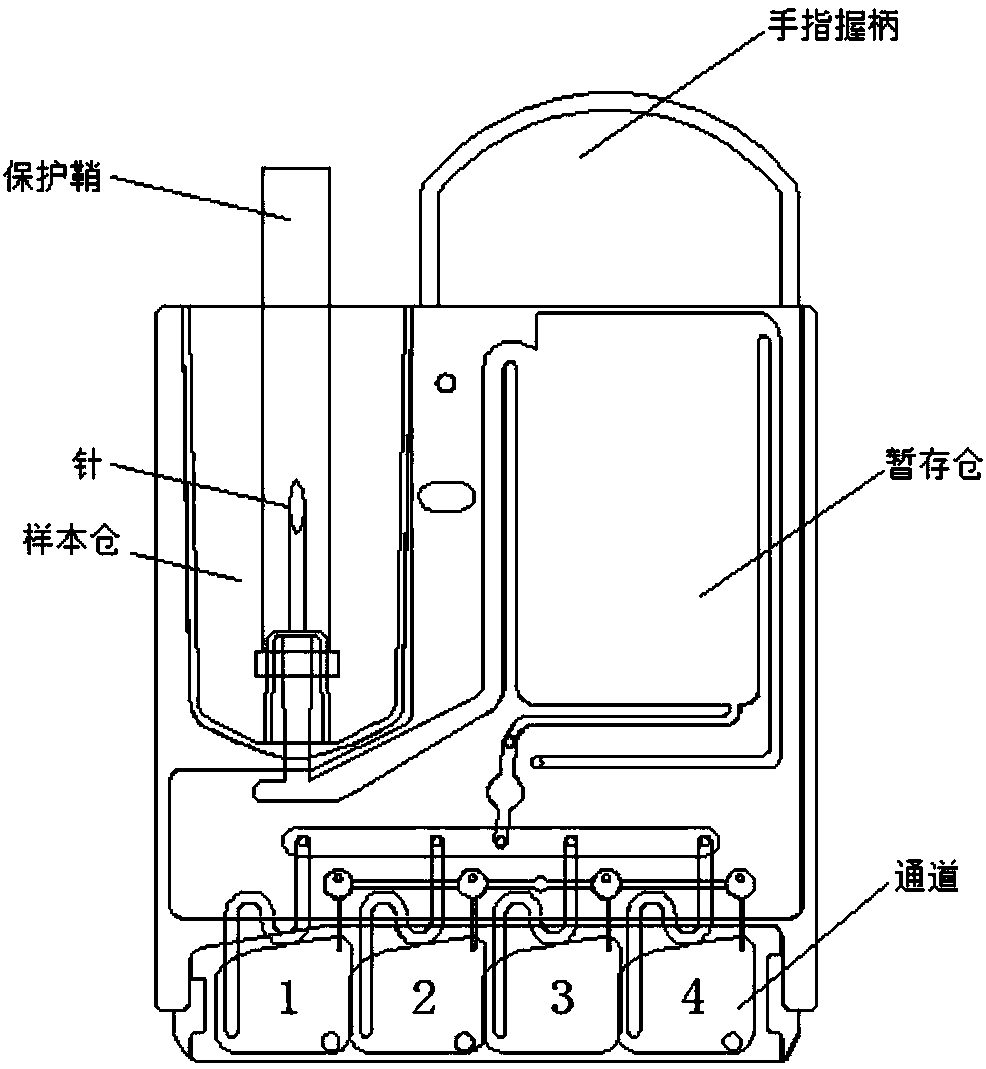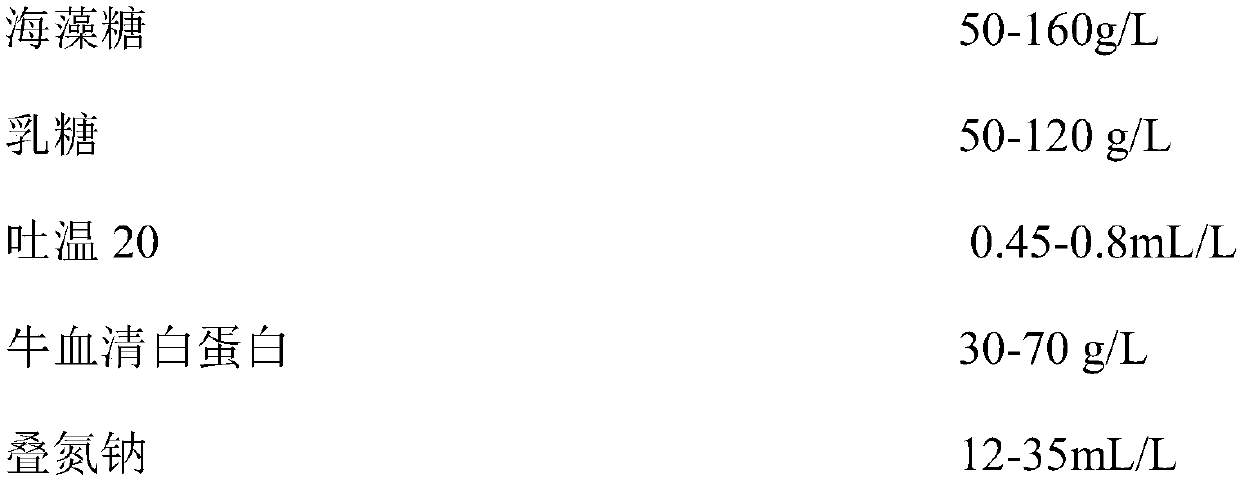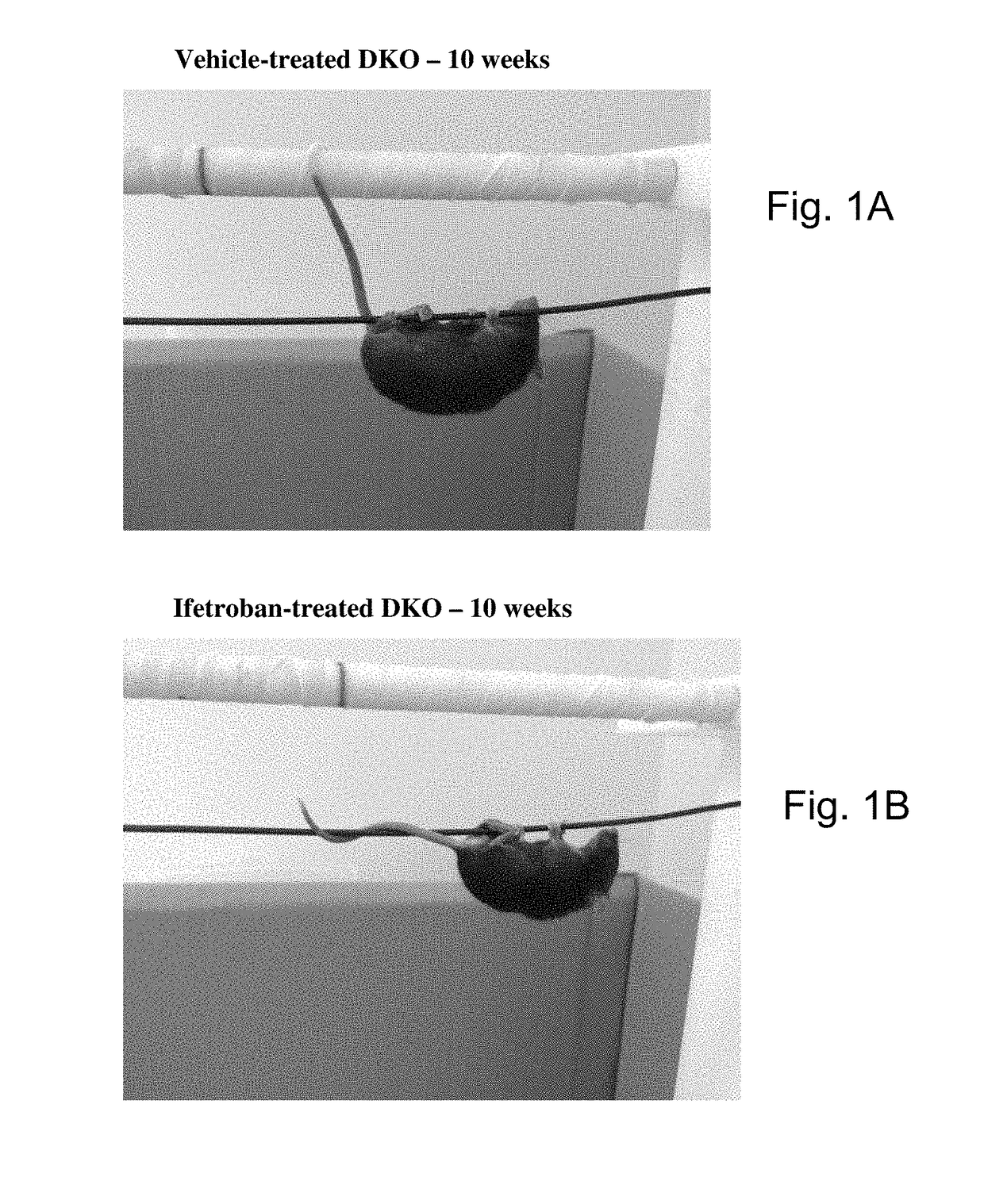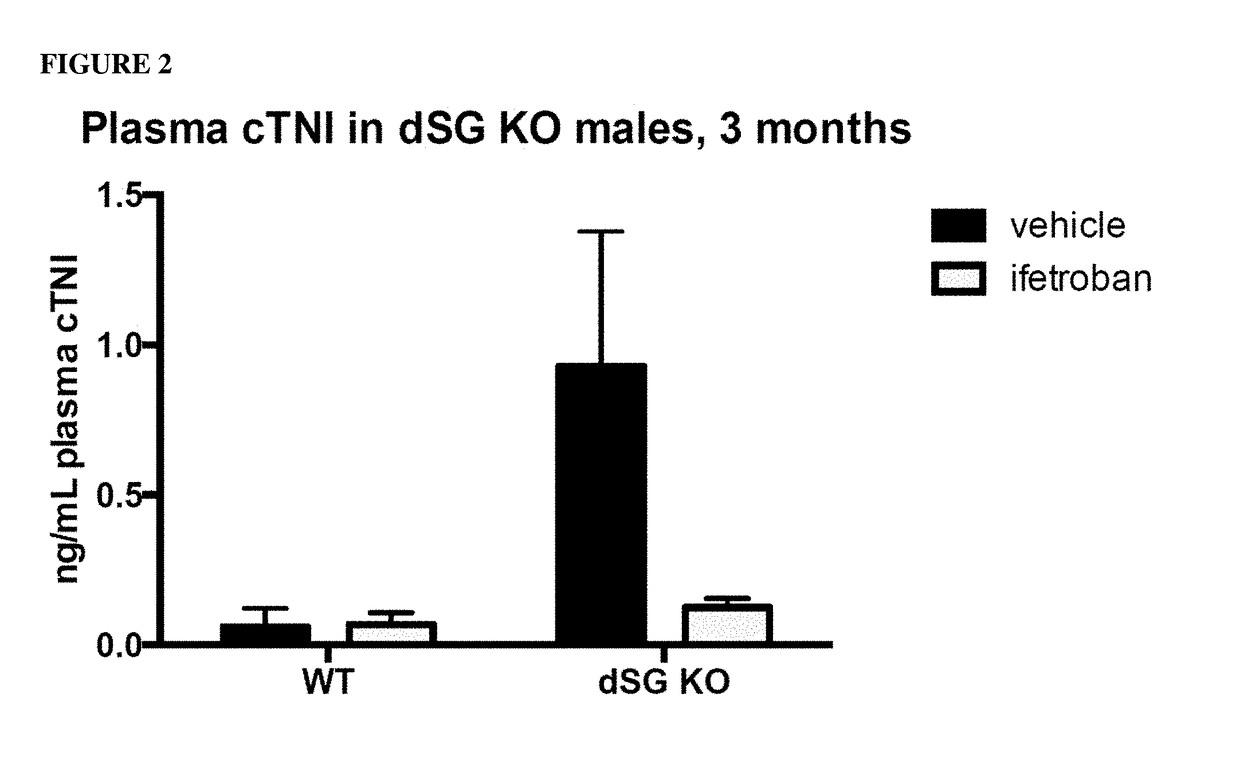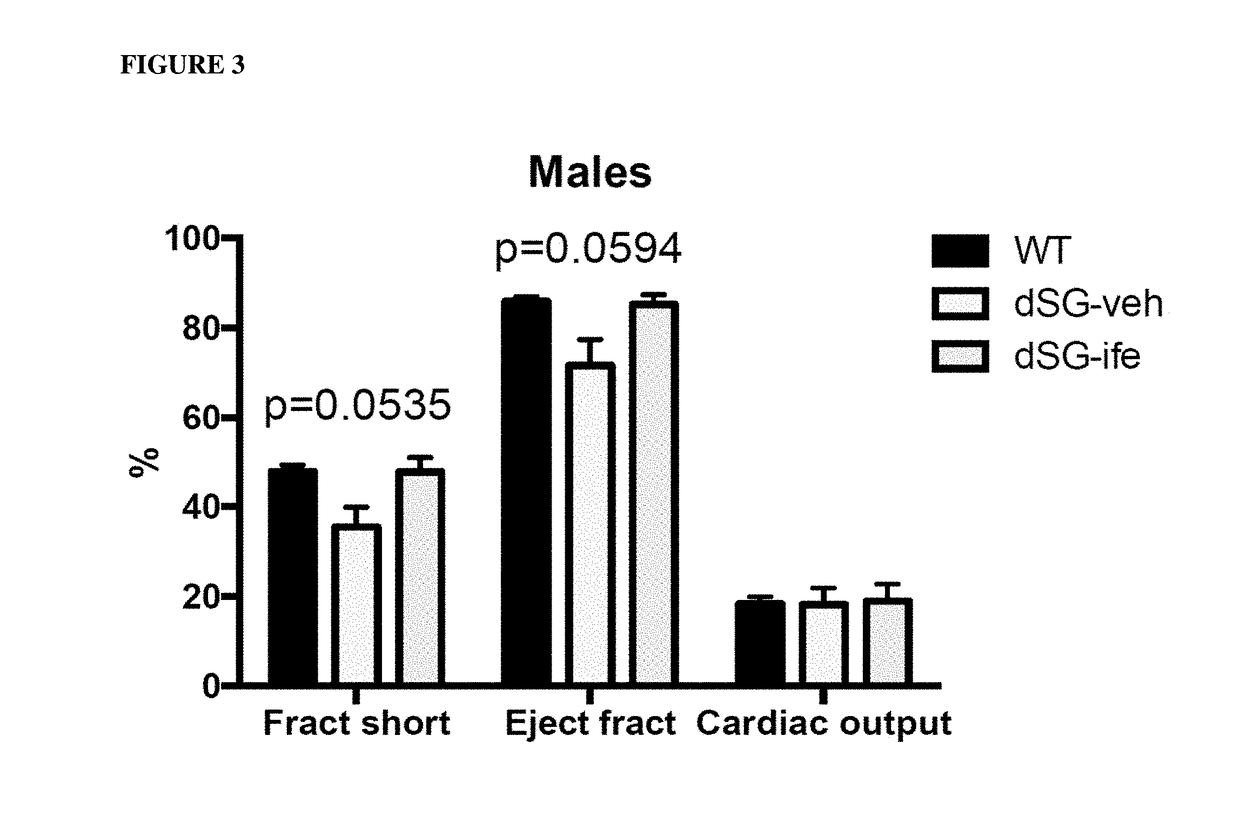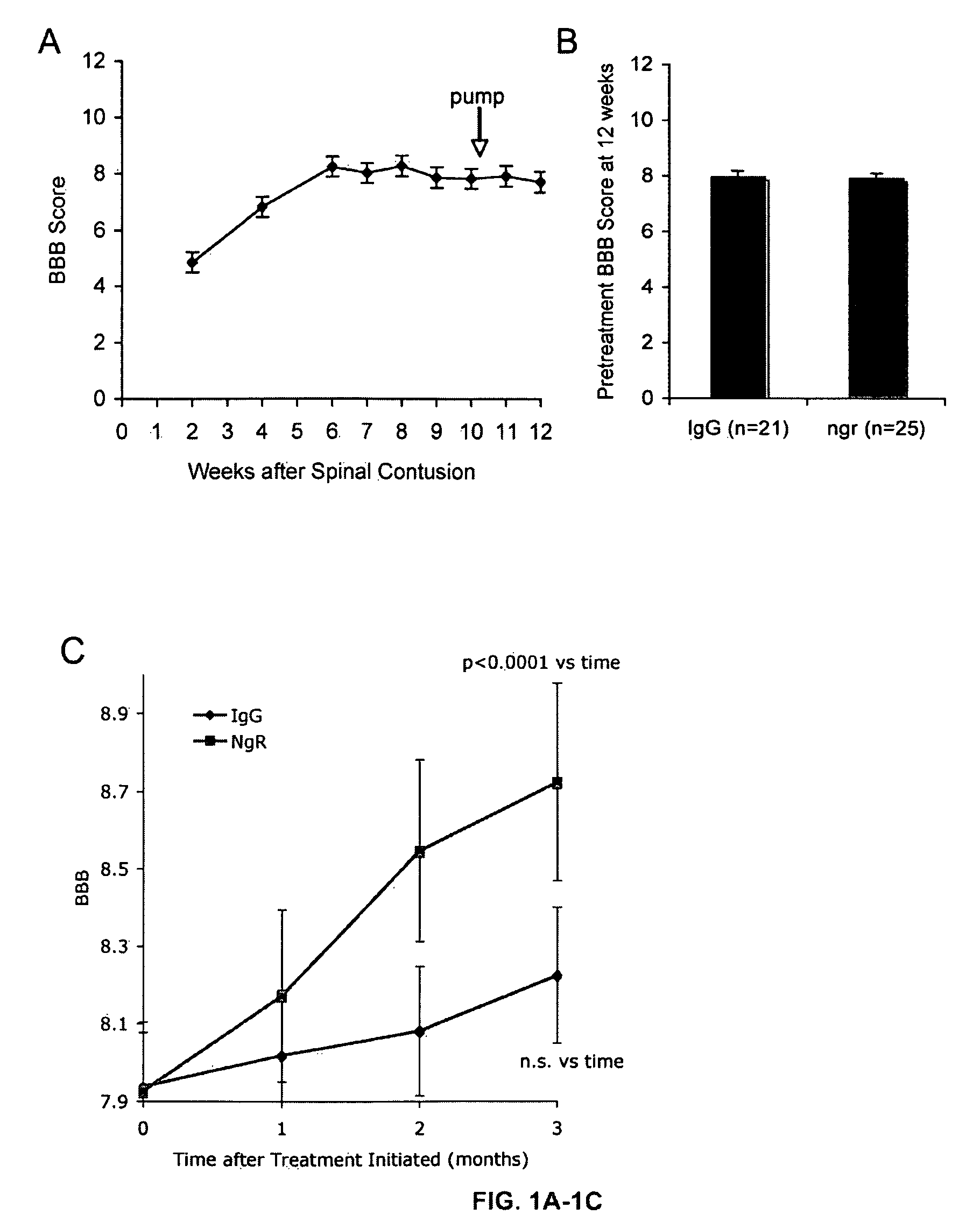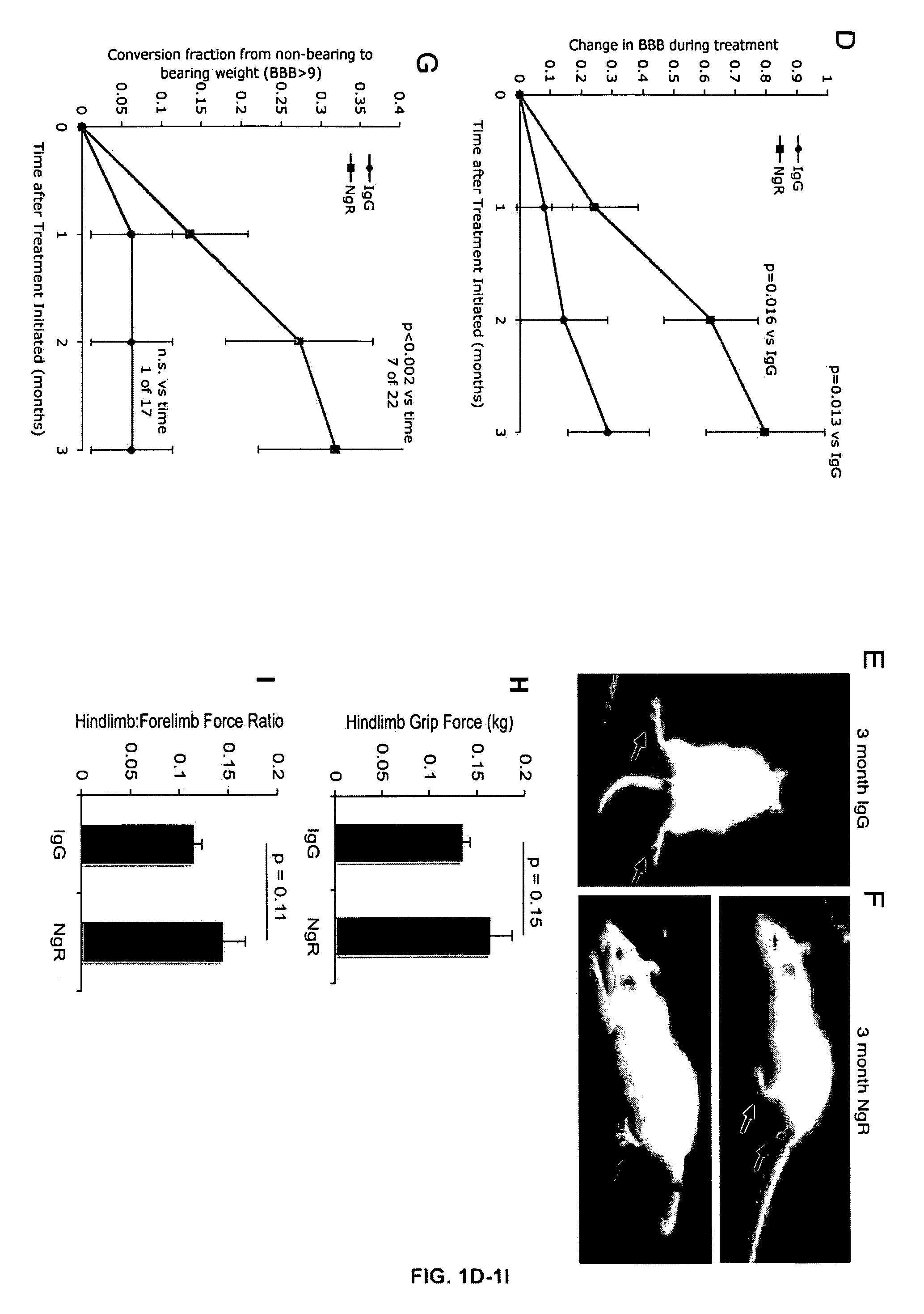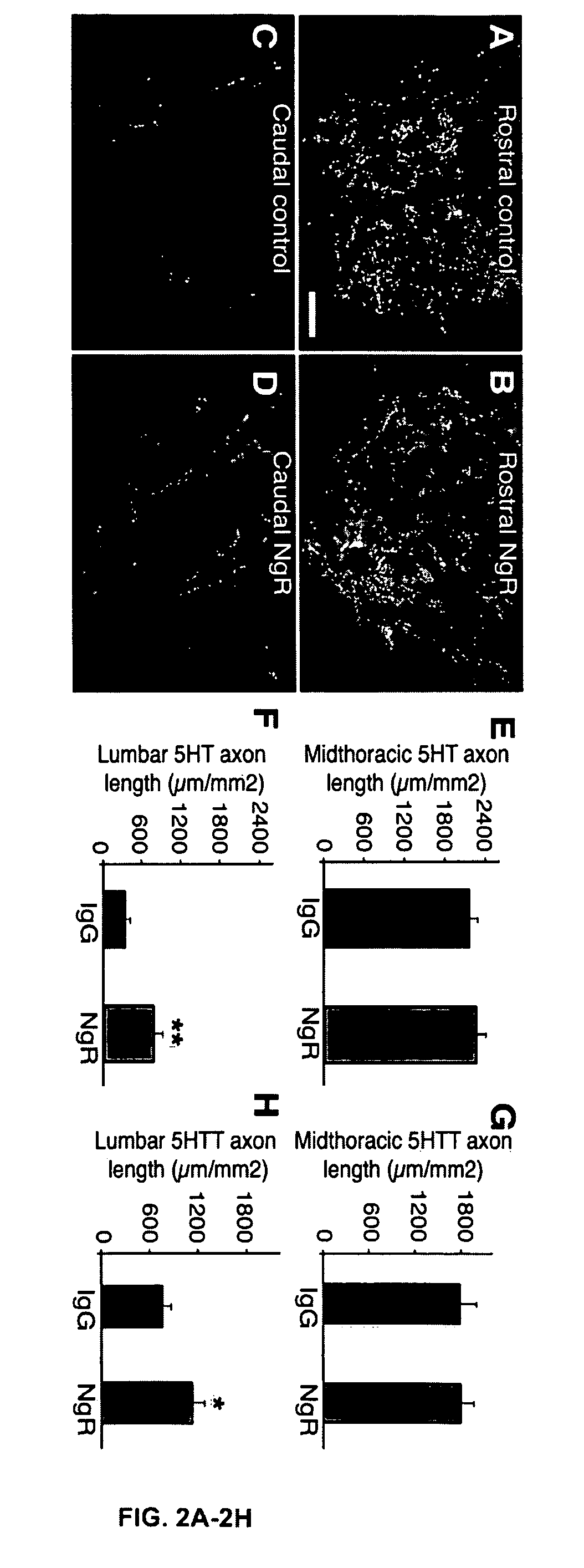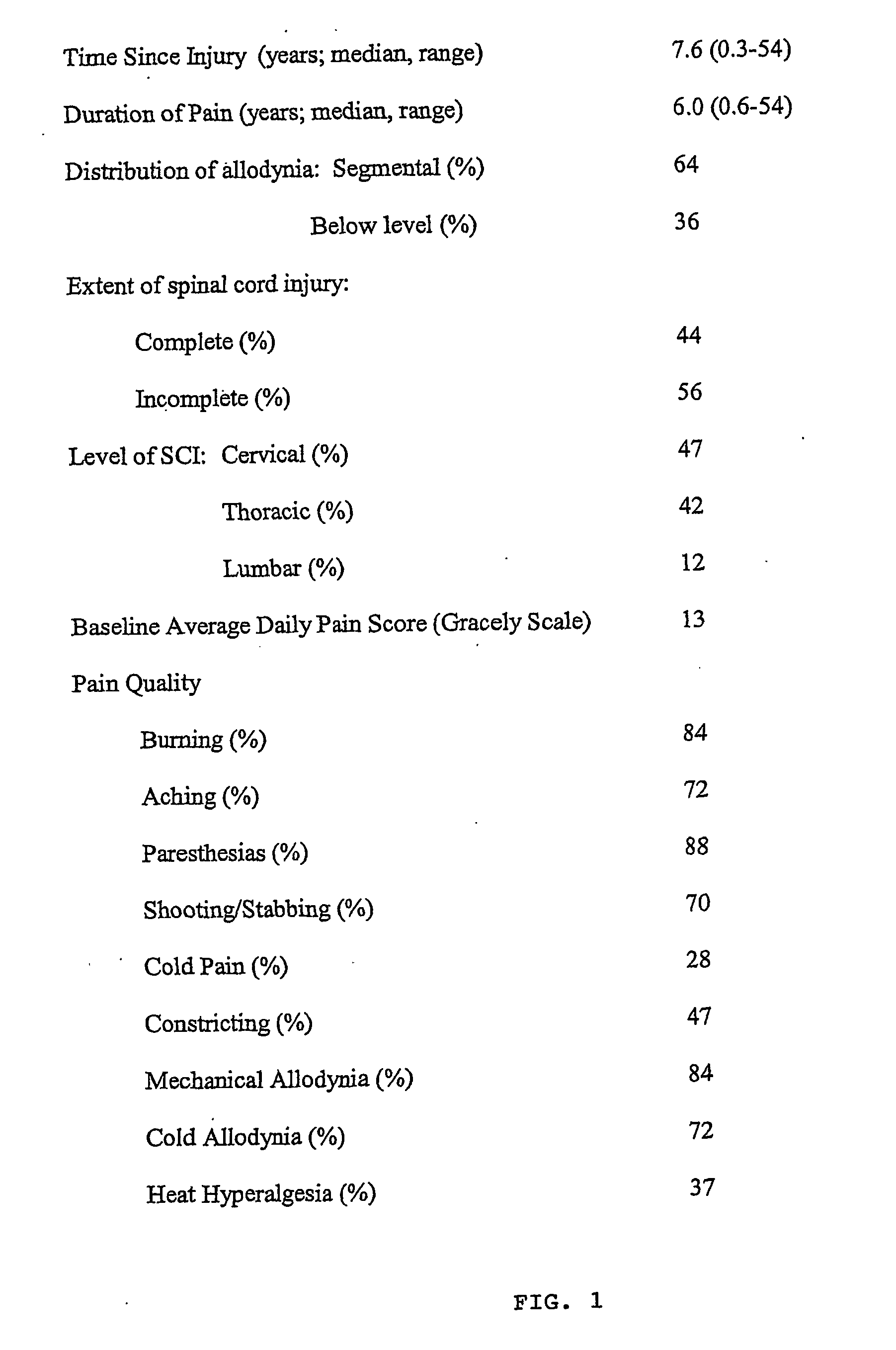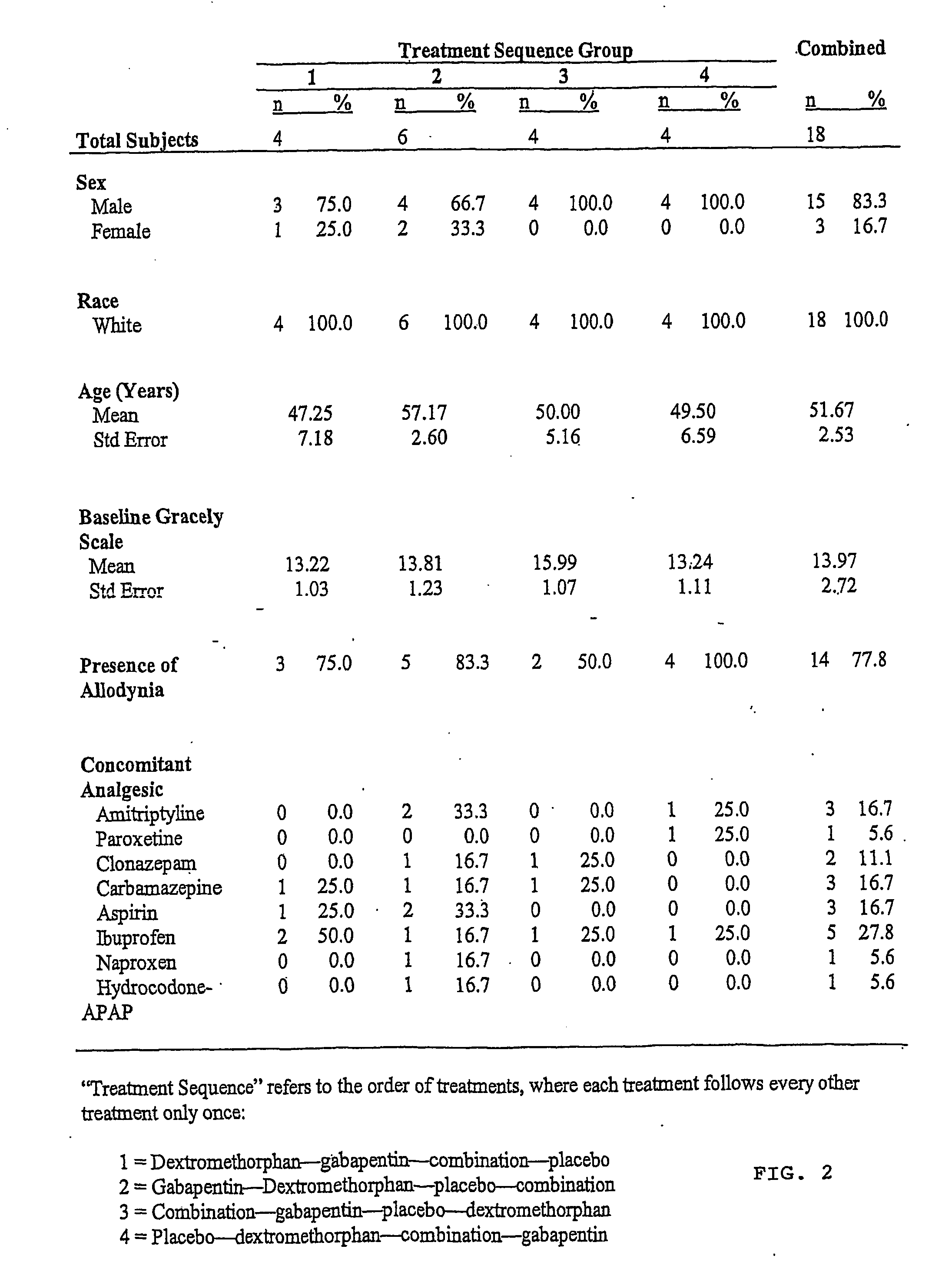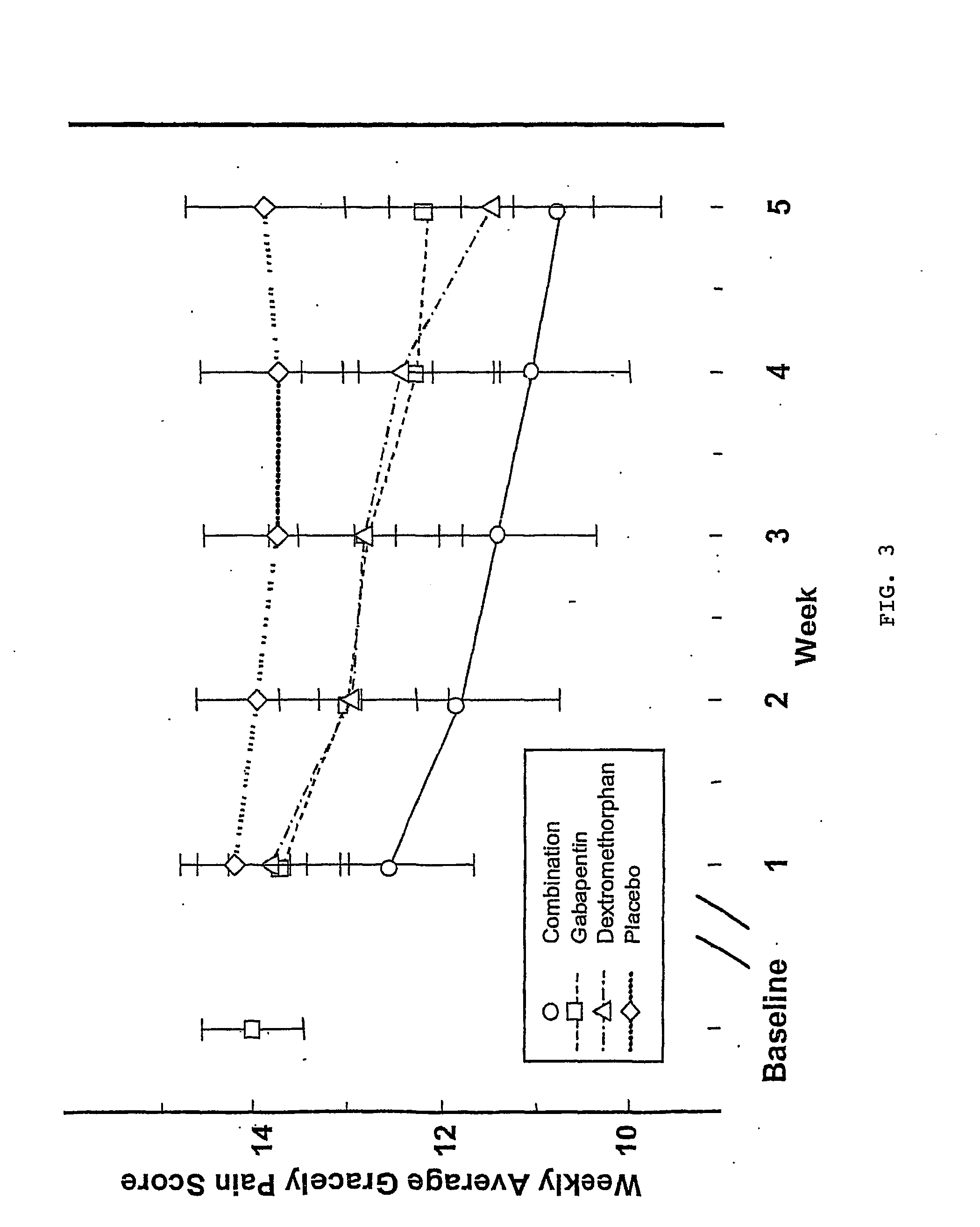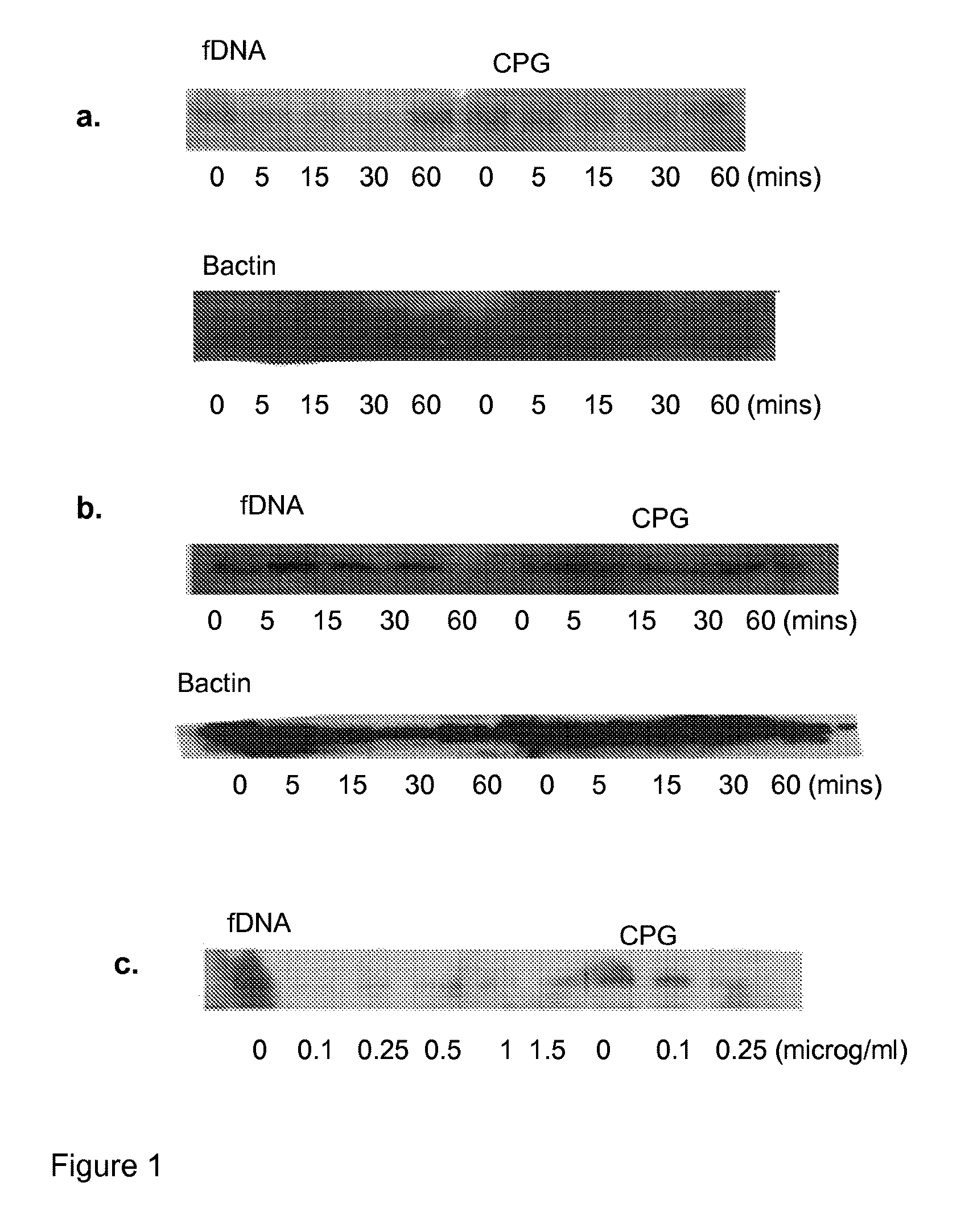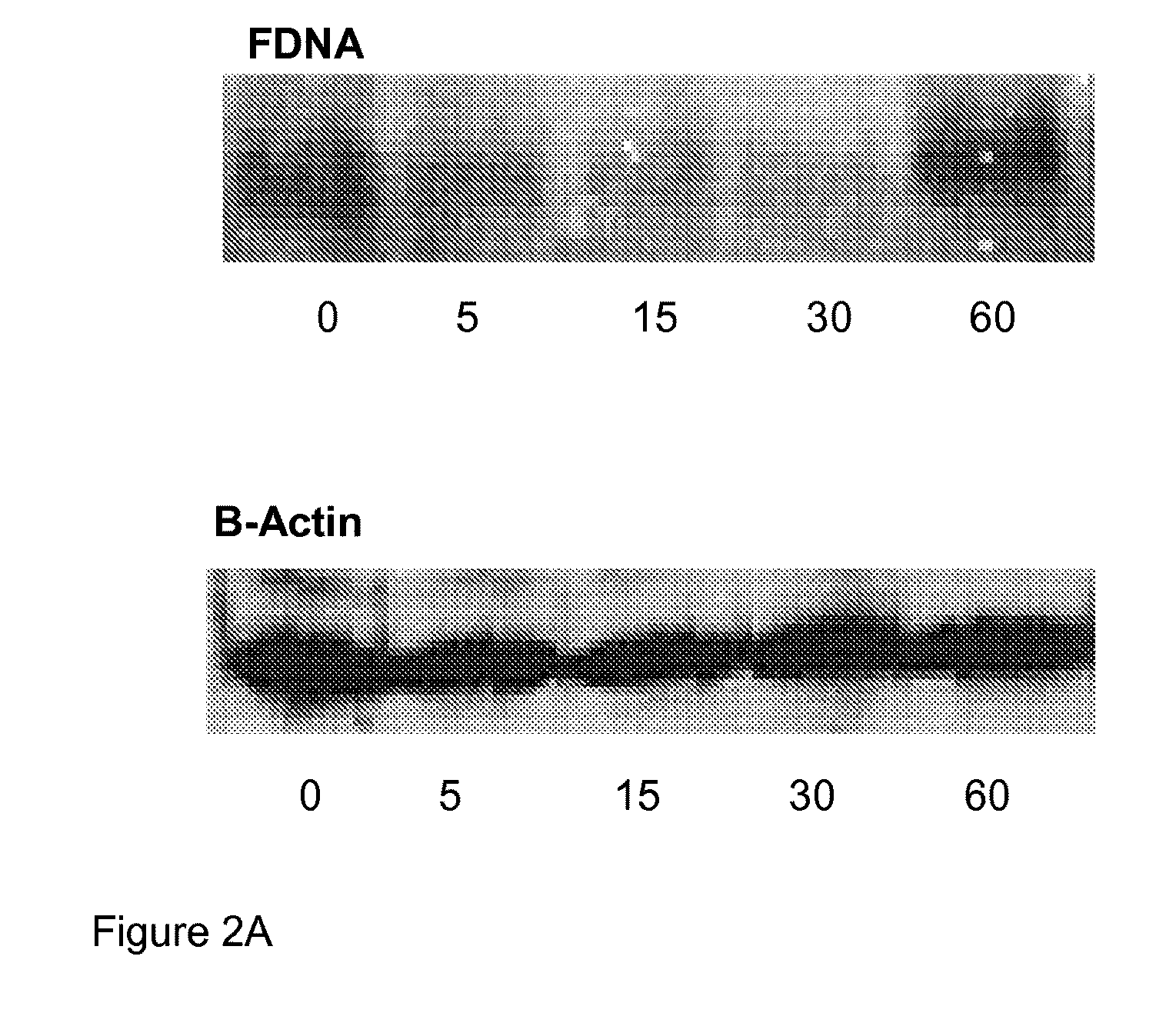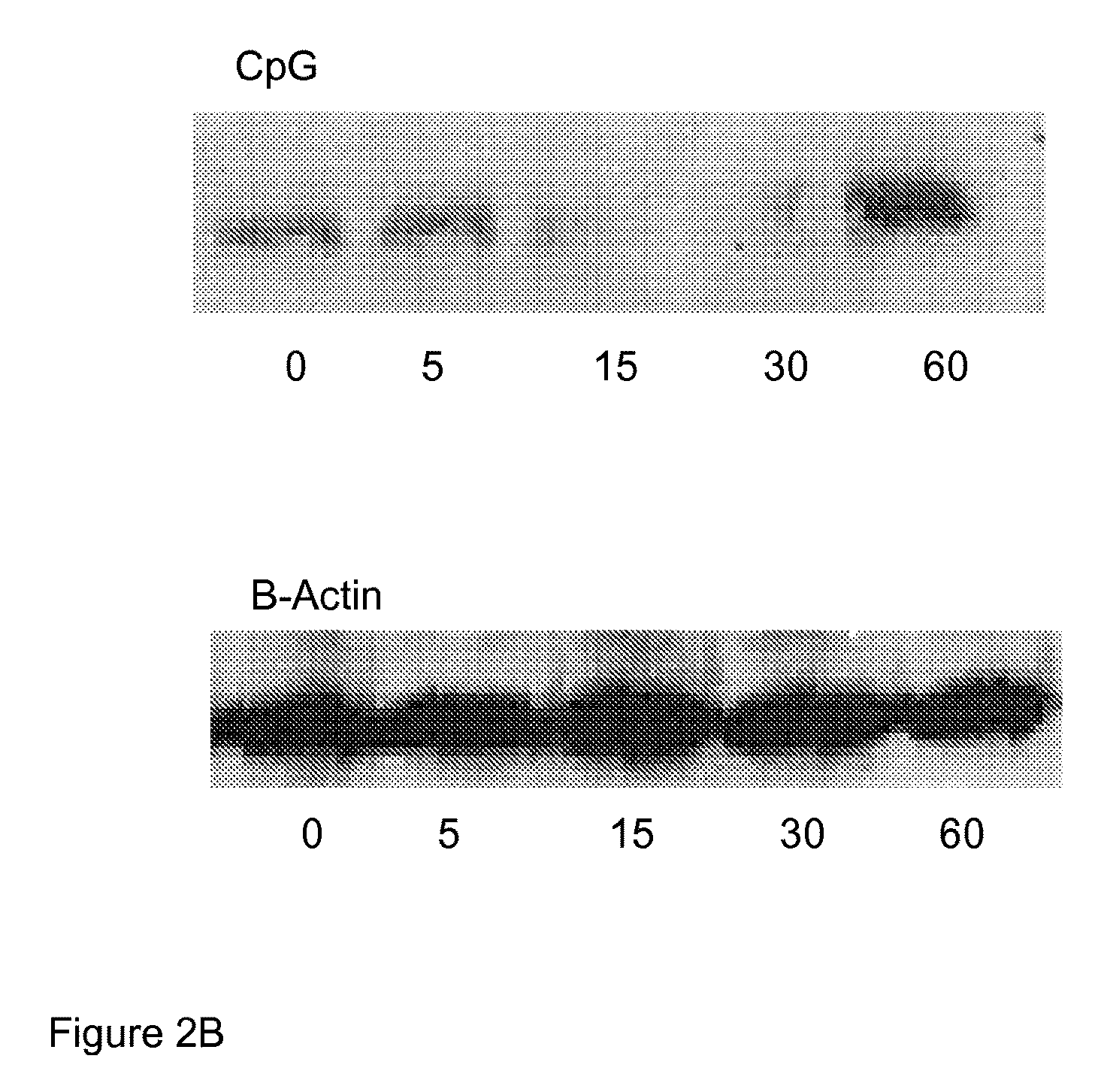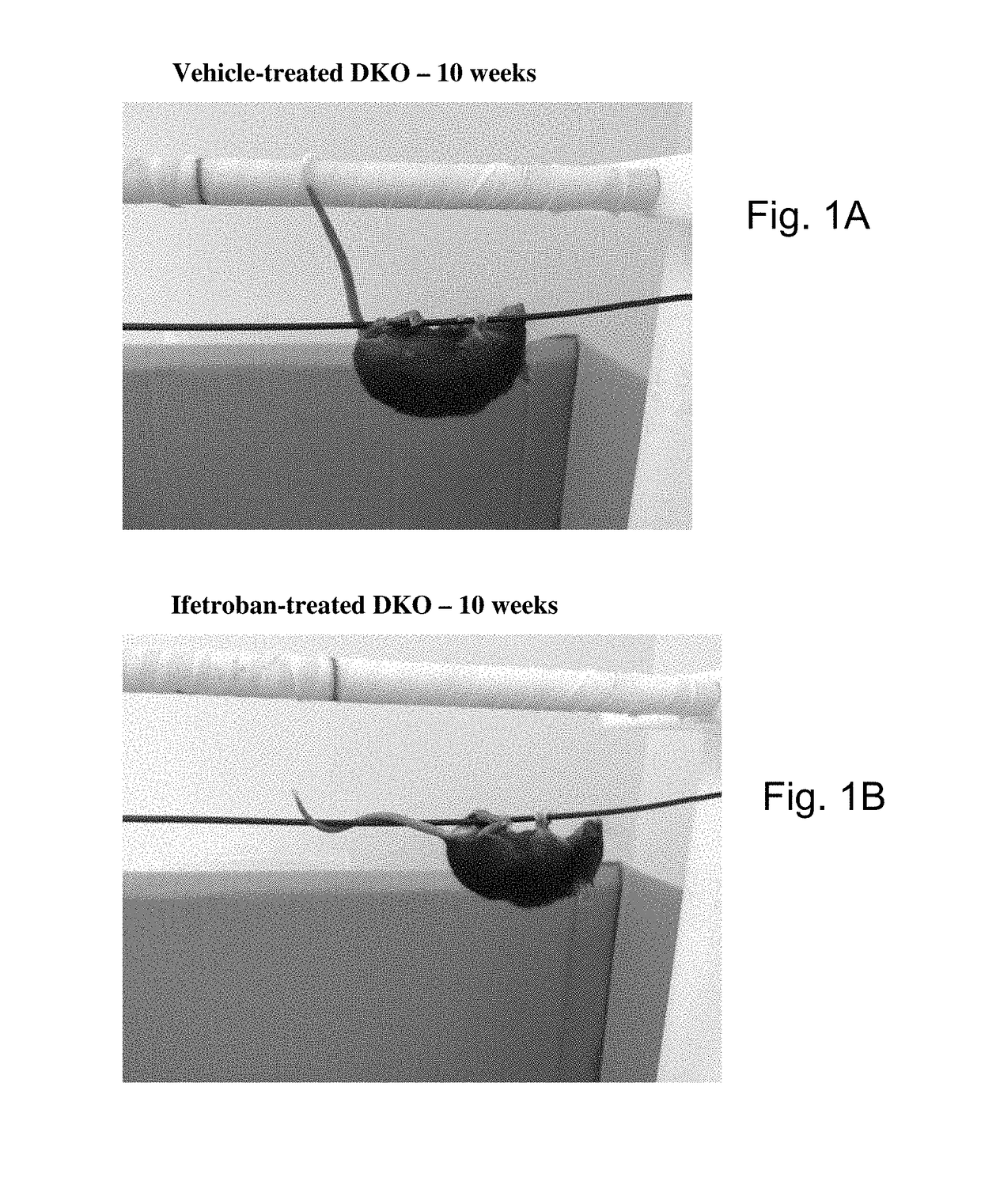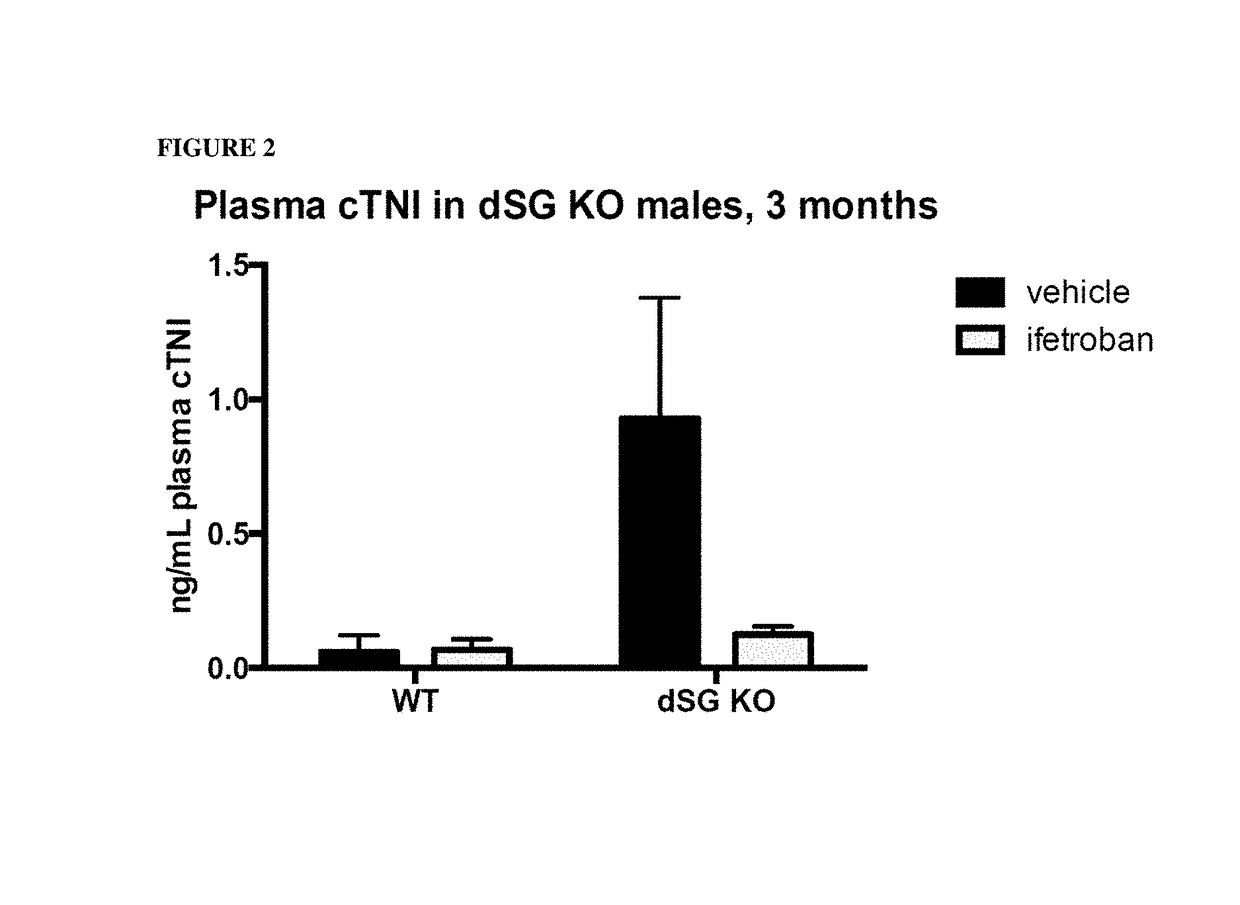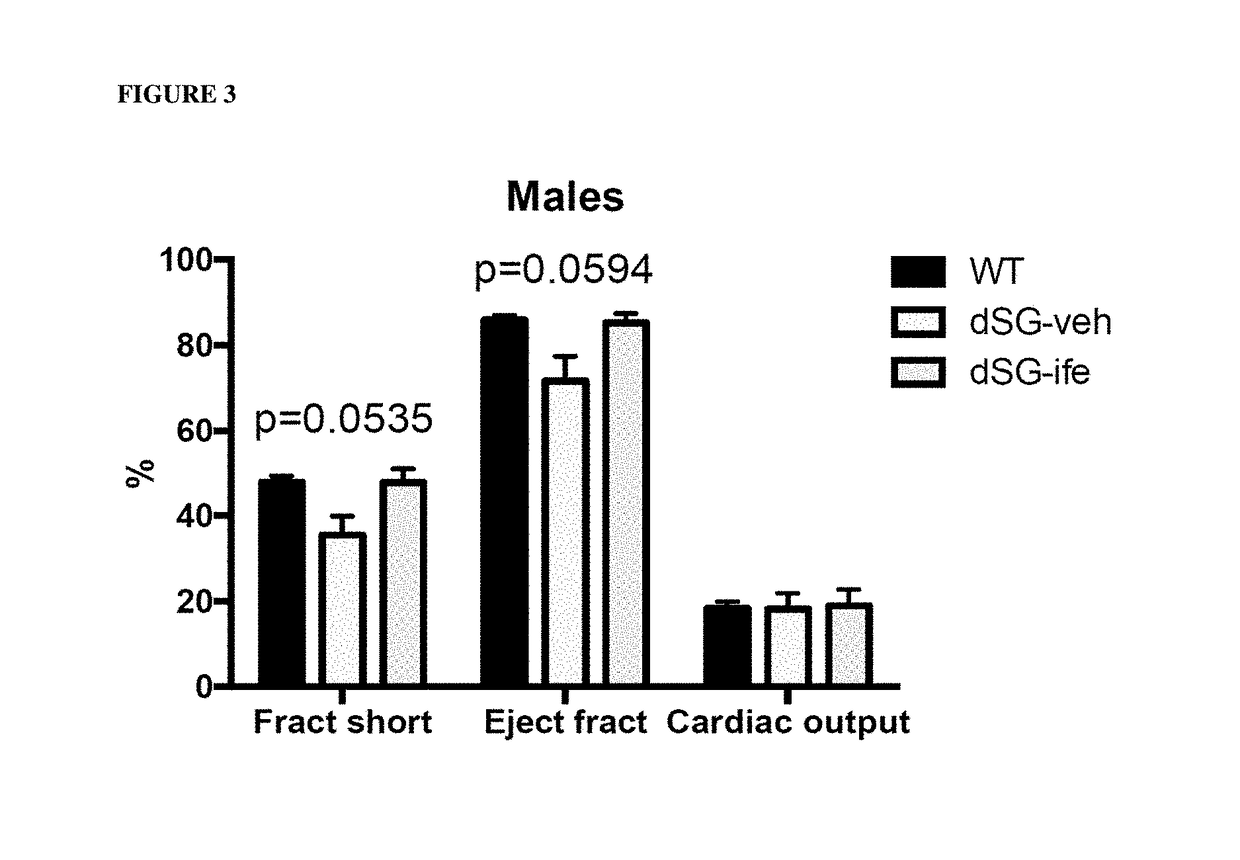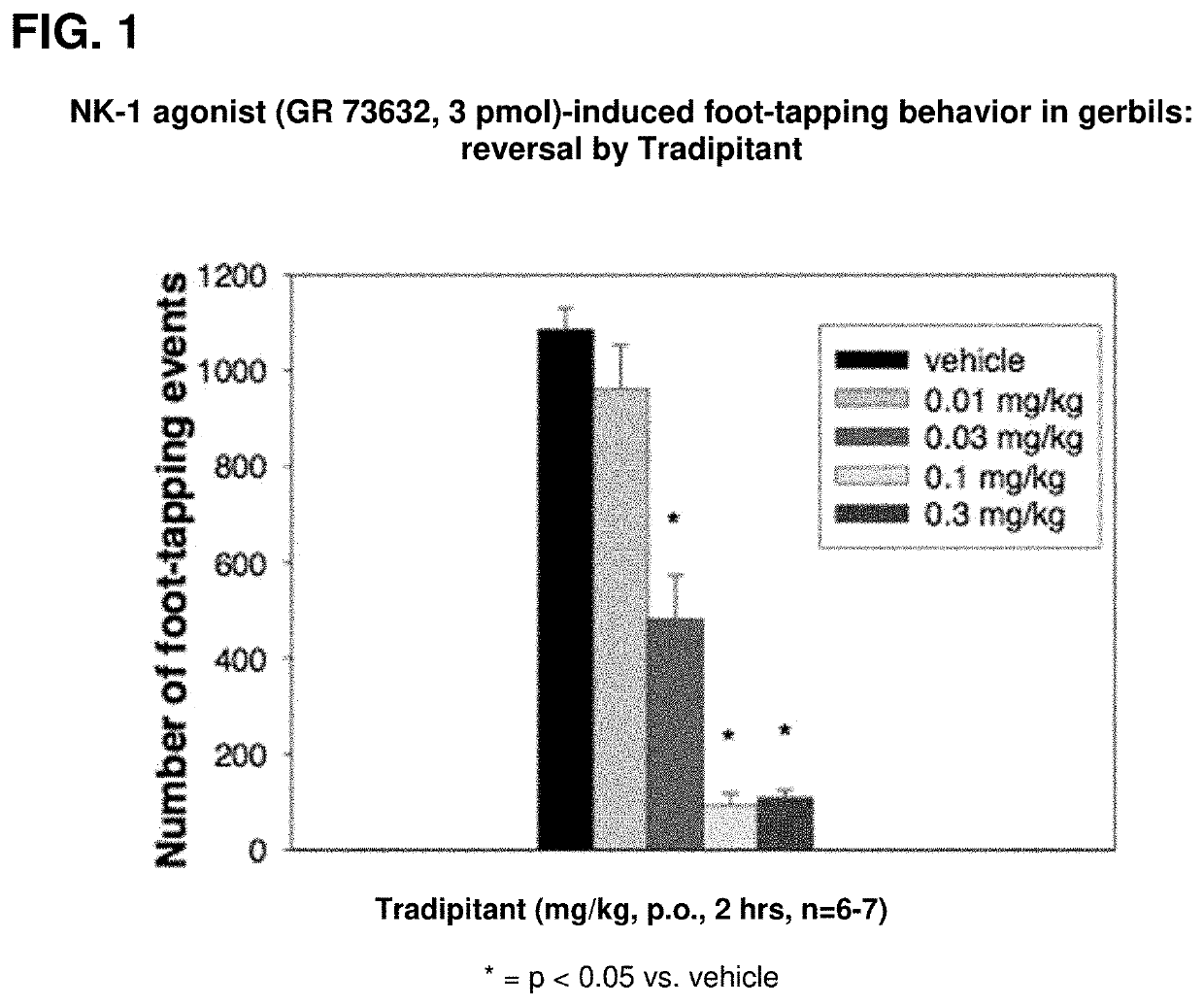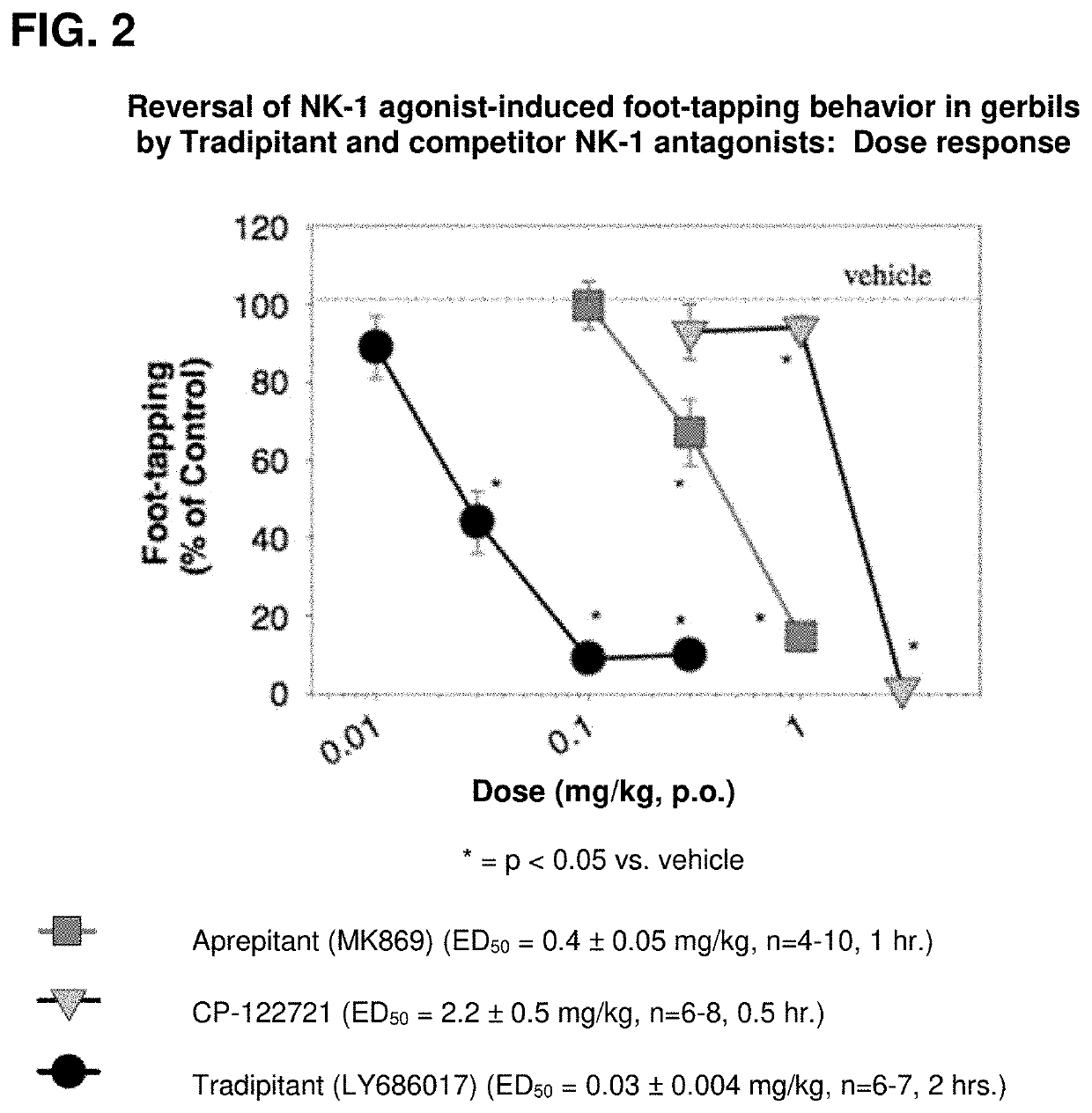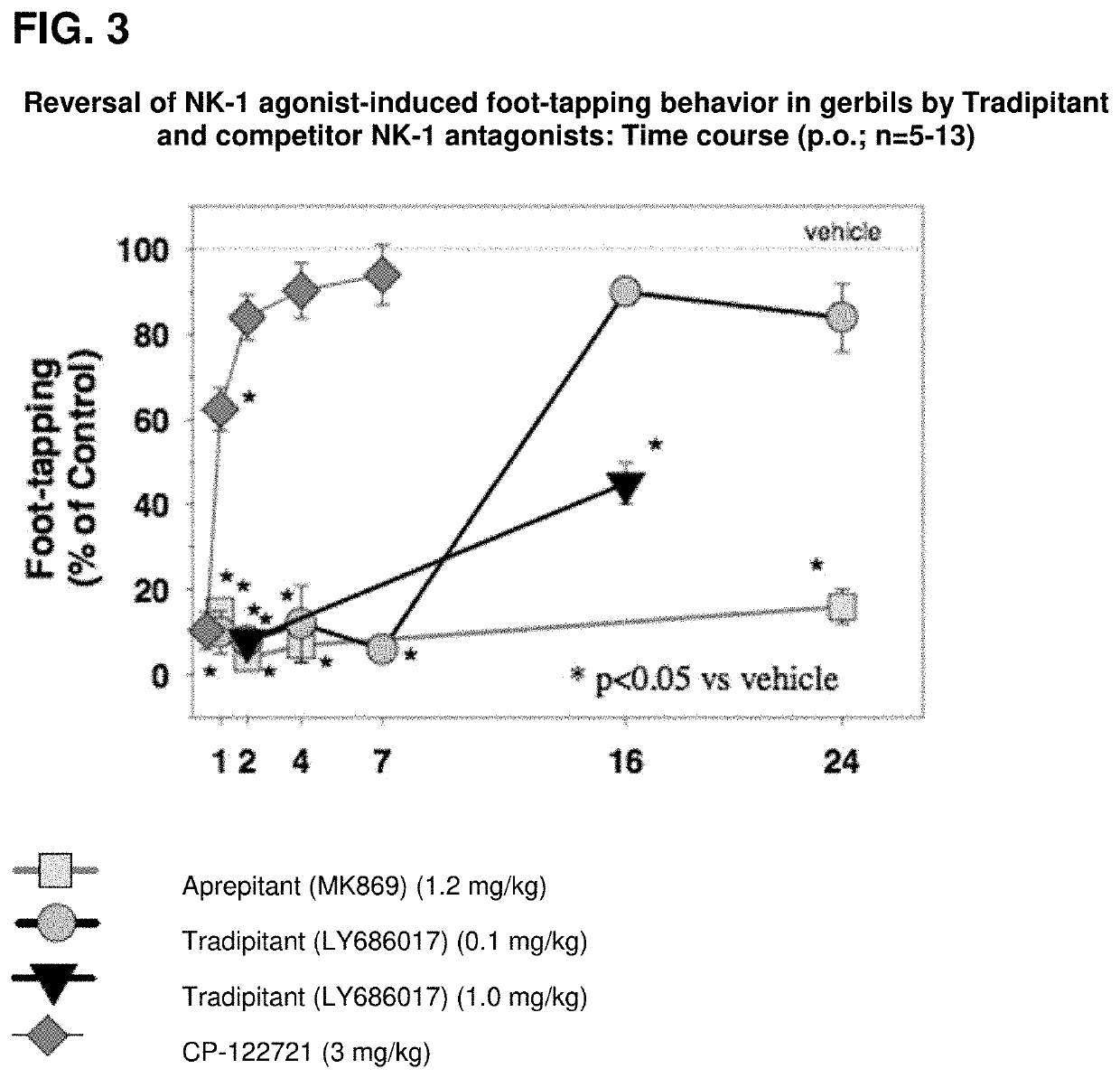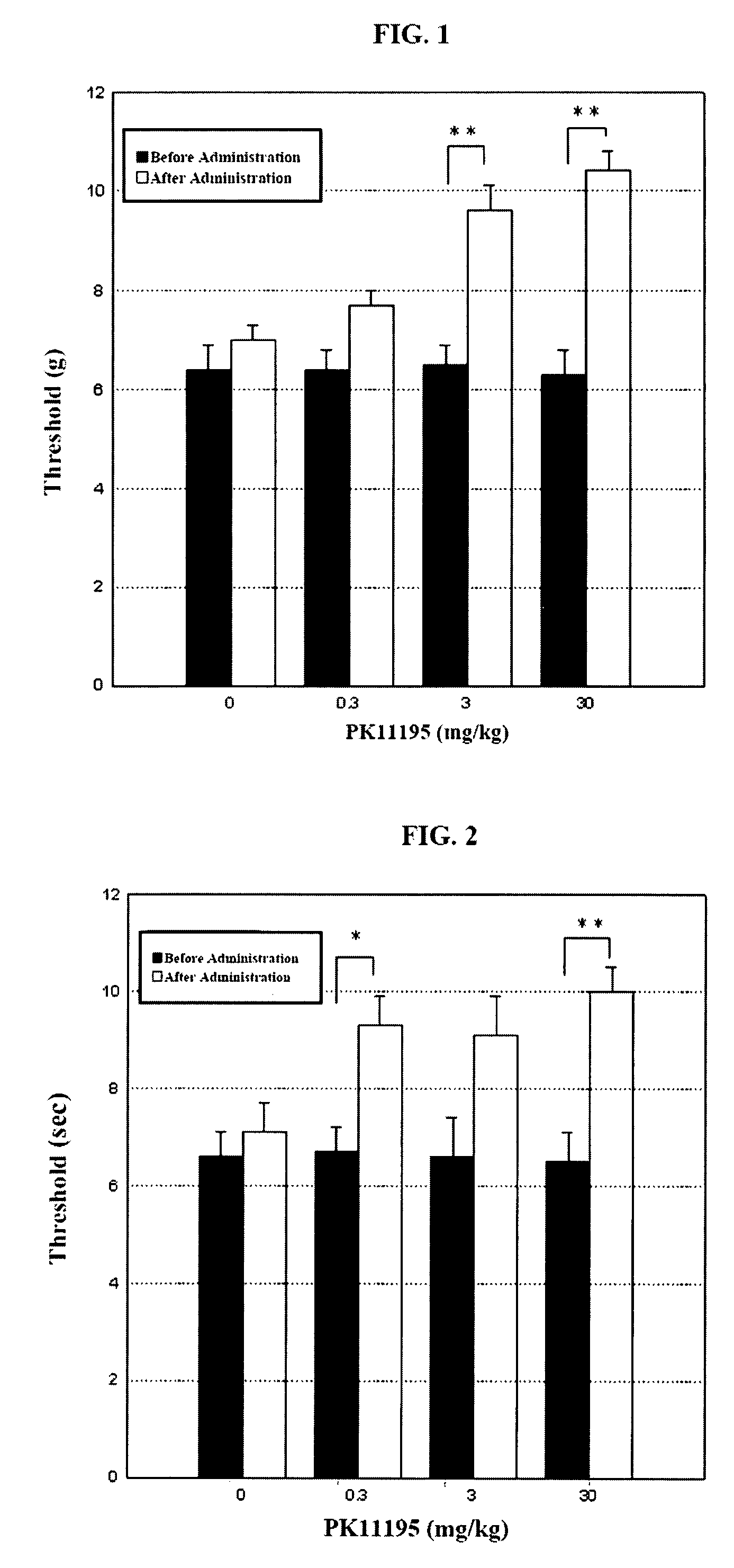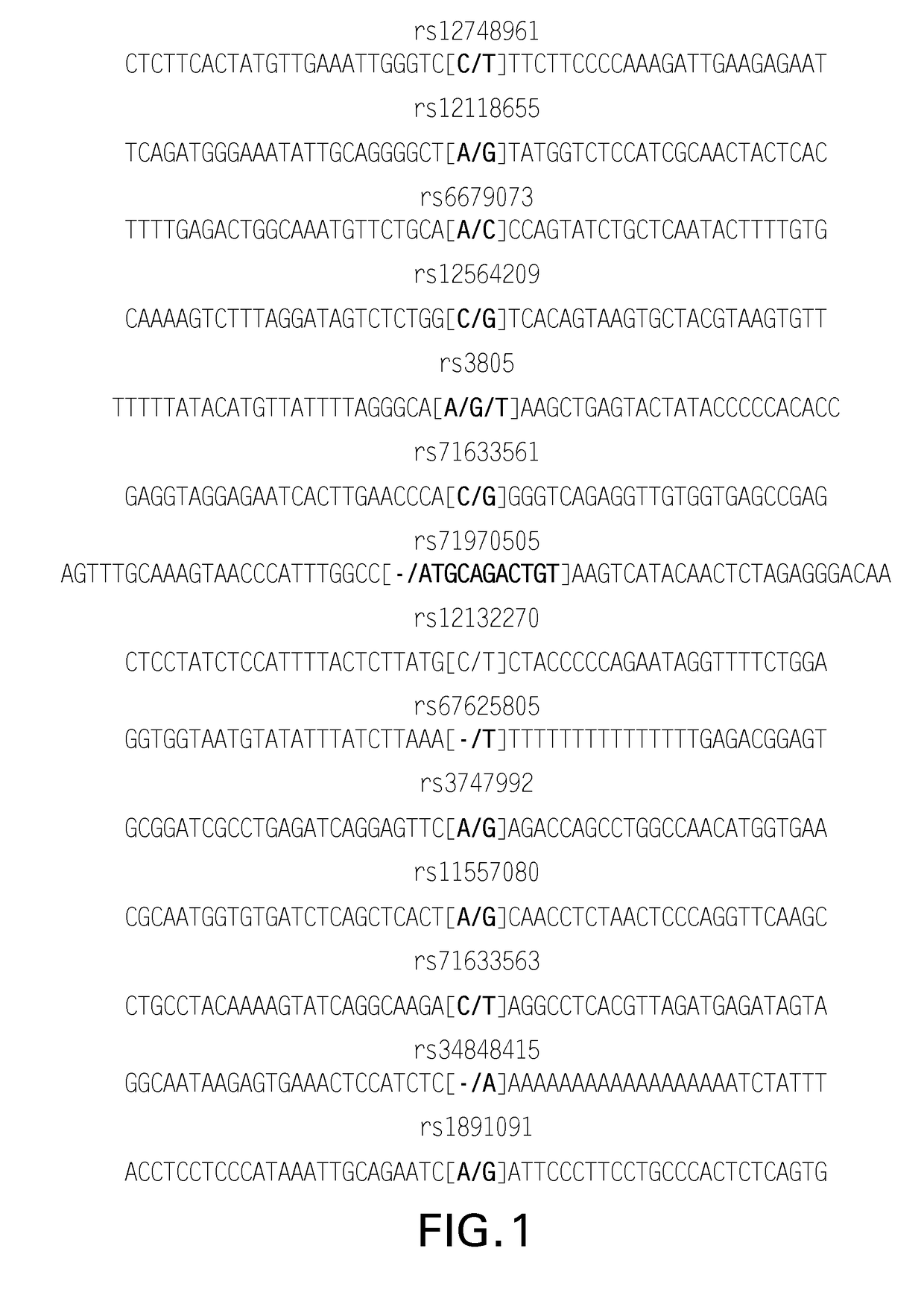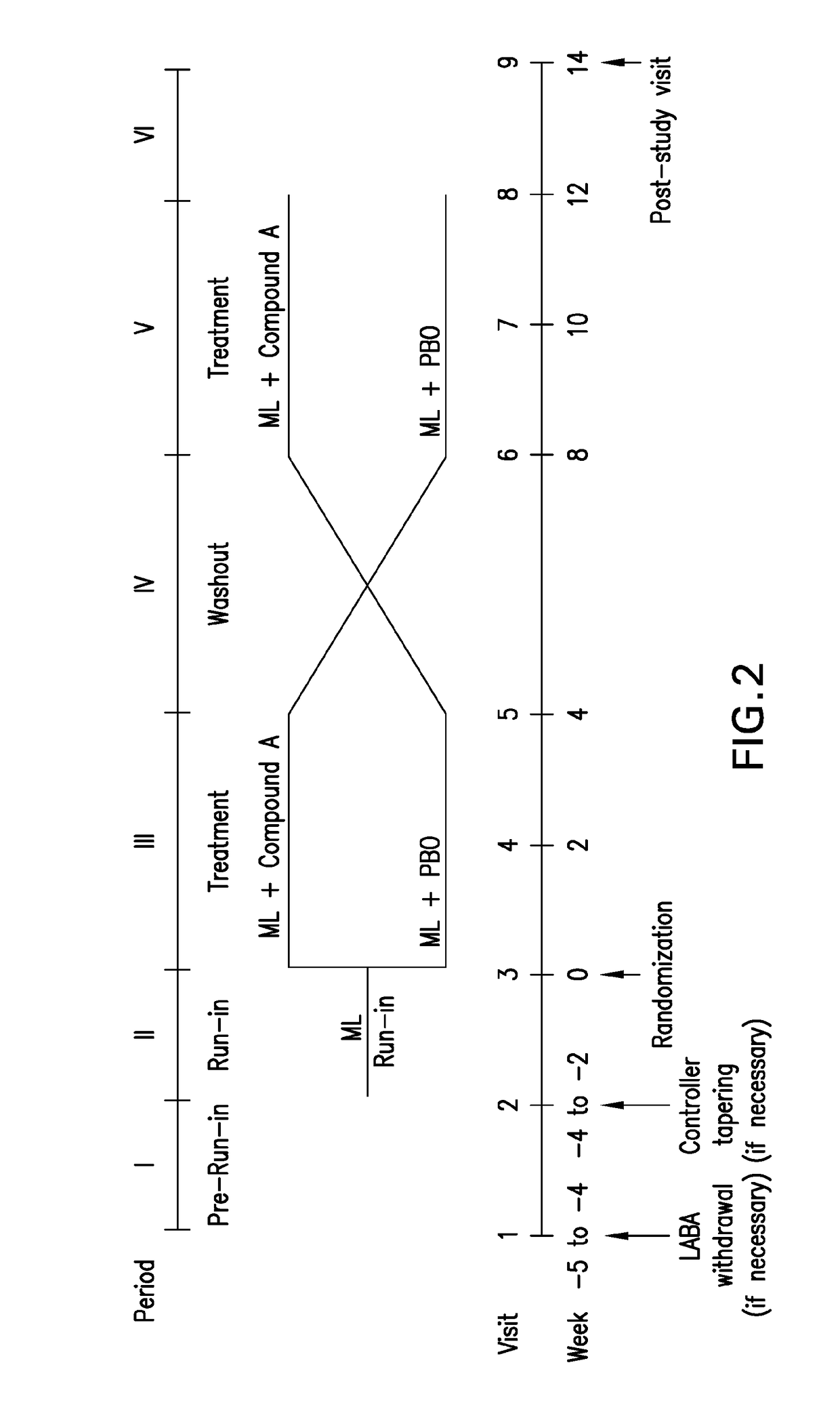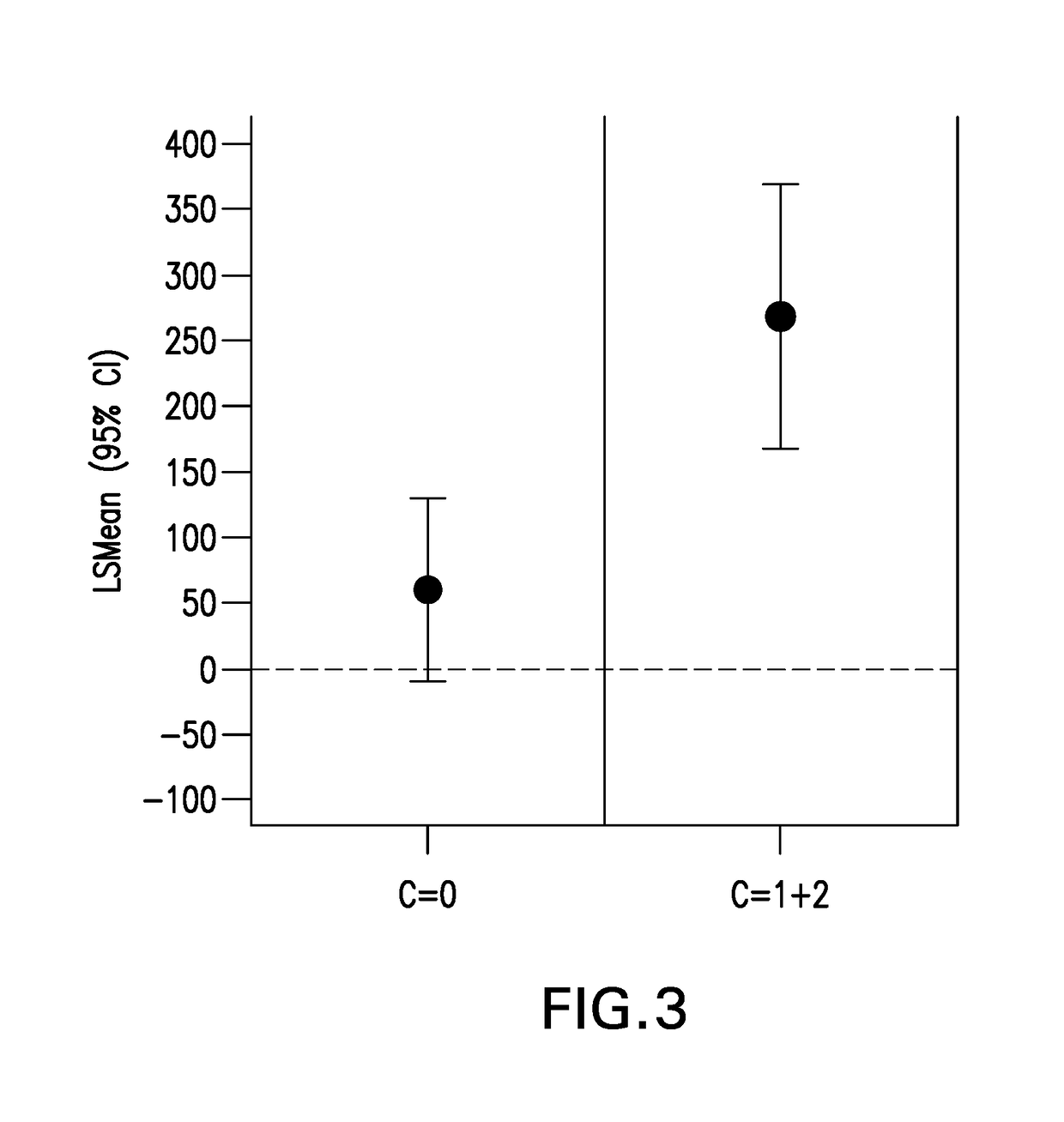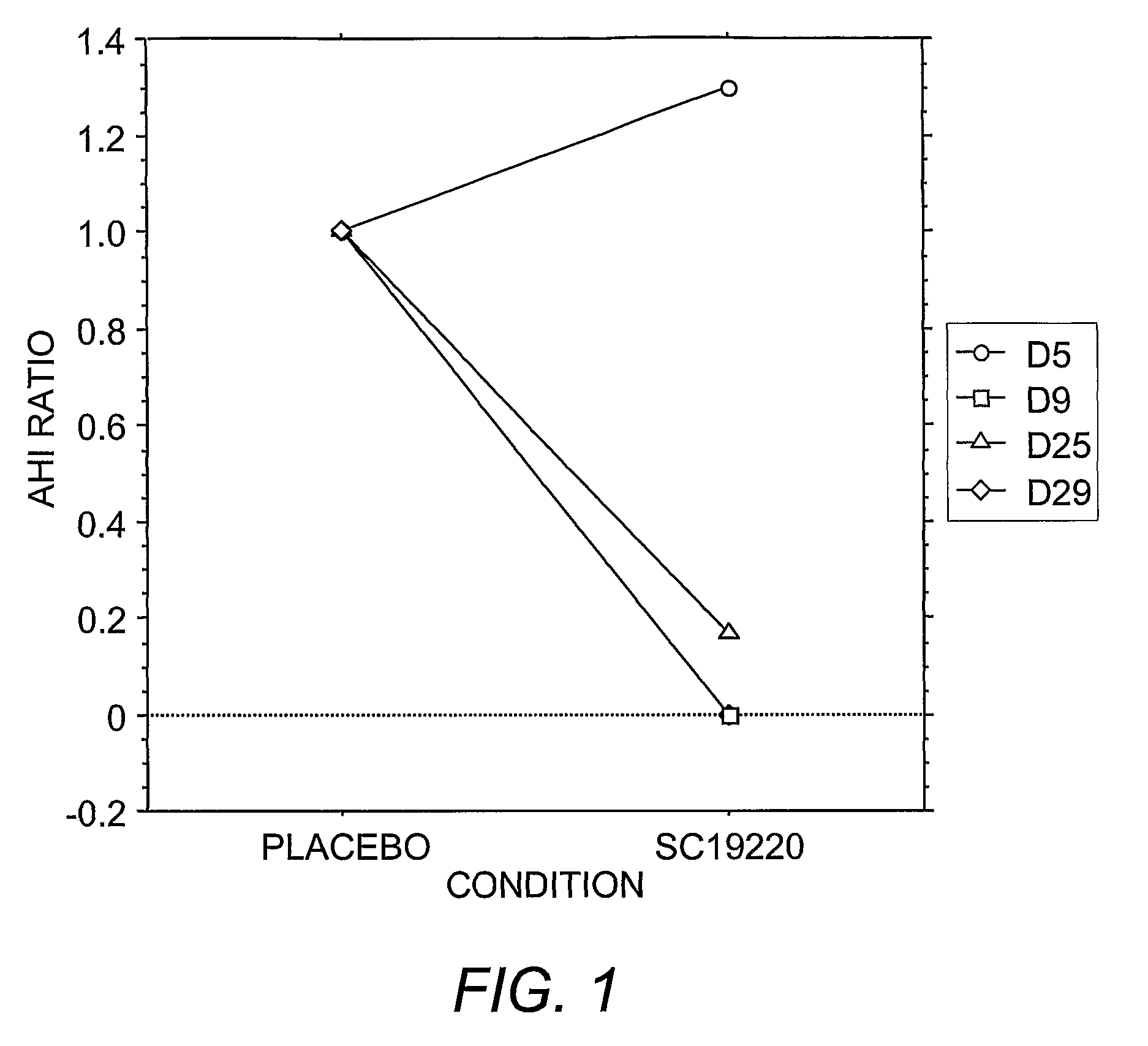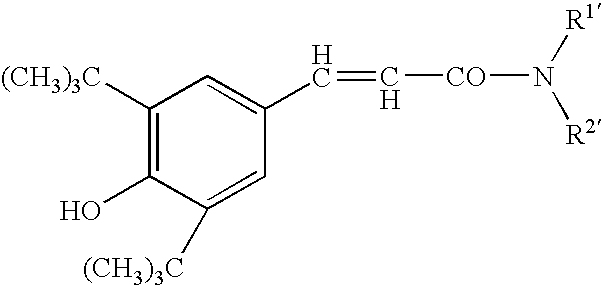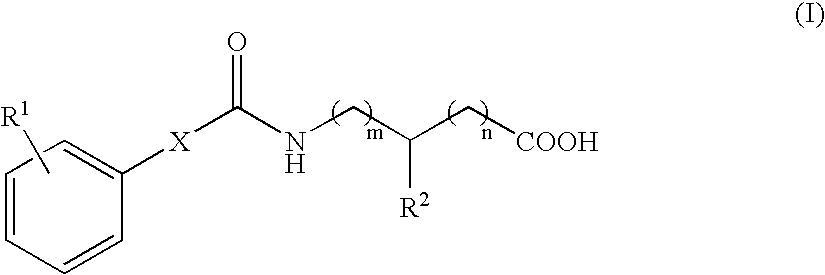Patents
Literature
51 results about "Receptor Antagonist Therapy" patented technology
Efficacy Topic
Property
Owner
Technical Advancement
Application Domain
Technology Topic
Technology Field Word
Patent Country/Region
Patent Type
Patent Status
Application Year
Inventor
Treatment of neurological disorders related to rapid eye movement (REM) sleep disturbances with NPY Y5 receptor antagonists
InactiveUS20050119285A1Reducing REM sleepTreating and preventing neurological disordersBiocideNervous disorderRapid Eye MovementsNeurological disorder
This invention relates to a method for treating and preventing neurological disorders related to rapid-eye-movement (REM) sleep disturbances in a mammal comprising administering to the mammal an amount of an NPY Y5 receptor antagonist which effectively reduces REM sleep.
Owner:PFIZER INC
Phenyl or heteroaryl amino alkane derivatives as ip receptor antagonist
InactiveUS20060089371A1Excellent IP receptor antagonistic activitySuitable for productionBiocideOrganic active ingredientsVisceral painHeadaches
The present invention relates to phenyl or heteroaryl amino alkane derivatives of formula (I) in which the groups Q1-Q4, Ar, and R1-R7 are as defined in the specification and claims. These materials are useful as active ingredients of pharmaceutical preparations. The phenyl or heteroaryl amino alkanes of the present invention have IP receptor antagonistic activity, and can be used for the prophylaxis and treatment of diseases associated with IP receptor antagonistic activity. Such diseases include urological diseases or disorders as follows: bladder outlet obstruction, overactive bladder, urinary incontinence, detrusor hyper-reflexia, detrusor instability, reduced bladder capacity, frequency of micturition, urge incontinence, stress incontinence, bladder hyperreactivity, benighn prostatic hypertrophy (BPH), prostatitis, urinary frequency, nocturia, urinary urgency, pelvic hypersensitivity, urethritis, pelvic pain syndrome, prostatodynia, cystitis, or idiophatic bladder hypersensitivity. The compounds of the present invention are also useful for treatment of pain including, but not limited to inflammatory pain, neuropathic pain, acute pain, chronic pain, dental pain, premenstrual pain, visceral pain, headaches, and the like; hypotension; hemophilia and hemorrhage; and inflammation, since these diseases also are alleviated by treatment with an IP receptor antagonist. The application claims the compounds, pharmaceutical compositions containing them, and methods of treatment using them.
Owner:BAYER HEALTHCARE AG
NMDA Receptor Antagonists for the Treatment of Neuropsychiatric Disorders
InactiveUS20110160223A1Good blood pressureLower blood pressureBiocideNervous disorderNR1 NMDA receptorPharmaceutical drug
Provided are pharmaceutical compositions and methods of treatment or prophylaxis of certain neuropsychiatric conditions, in particular mood disorders. The compounds are of the general Formula I-V as described herein.
Owner:EMORY UNIVERSITY
Use of NK-1 receptor antagonists in pruritus
ActiveUS9198898B2Organic active ingredientsOintment deliveryAntipruritic agentsNK 1 Receptor Antagonists
Owner:VYNE THERAPEUTICS INC
P2X3 Receptor Antagonists for Treatment of Pain
The subject invention relates to novel P2X3 receptor antagonists that play a critical role in treating disease states associated with pain, in particular peripheral pain, inflammatory pain, or tissue injury pain that can be treated using a P2X3 receptor subunit modulator.
Owner:MERCK SHARP & DOHME LLC
Optimizing mifepristone levels in plasma serum of patients suffering from mental disorders treatable with glucocorticoid receptor antagonists
The present invention provides a method for optimizing levels of mifepristone in a patient suffering from a mental disorder amenable to treatment by mifepristone. The method comprises the steps of treating the patient with seven or more daily doses of mifepristone over a period of seven or more days; testing the serum levels of the patient to determine whether the blood levels of mifepristone are greater than 1300 ng / mL; and adjusting the daily dose of the patient to achieve mifepristone blood levels greater than 1300 ng / mL.
Owner:CORCEPT THERAPEUTICS INC
Methods of treating hepatorenal syndrome and hepatic encephalopathy with thromboxane-a2 receptor antagonists
InactiveUS20130197044A1Avoid failureSpeed up the flowBiocideNervous disorderThromboxane A2 receptorNK1 receptor antagonist
The present invention is directed to methods of treating hepatorenal syndrome by administration of a therapeutically effective amount of a thromboxane A2 receptor antagonist to a patient in need thereof. The present invention is also directed to methods of treating hepatic encephalopathy and cerebral edema by administration of a therapeutically effective amount of a thromboxane A2 receptor antagonist to a patient in need thereof.
Owner:CUMBERLAND EMERGING TECH
P2X3 receptor antagonists for treatment of pain
The subject invention relates to novel P2X3 receptor antagonists that play a critical role in treating disease states associated with pain, in particular peripheral pain, inflammatory pain, or tissue injury pain that can be treated using a P2X3 receptor subunit modulator.
Owner:MERCK SHARP & DOHME LLC
P2x3 receptor antagonists for treatment of pain
The subject invention relates to novel P2X3 receptor antagonists that play a critical role in treating disease states associated with pain, in particular peripheral pain, inflammatory pain, or tissue injury pain that can be treated using a P2X3 receptor subunit modulator.
Owner:MERCK SHARP & DOHME LLC
Treatment of Conditions Involving Dopaminergic Neuronal Degeneration Using Nogo Receptor Antagonists
The invention provides methods for promoting regeneration or survival of dopaminergic neurons in a mammal displaying signs or symptoms of dopaminergic neuronal degeneration, including a human with Parkinson's disease, using Nogo receptor antagonists.
Owner:YALE UNIV +1
Treatment of down syndrom with benzodiazepine receptor antagonists
InactiveUS20090270373A1Safety managementObject recognitionBiocideNervous disorderBenzodiazepine receptor ligandReceptor antagonist
Pharmaceutical compositions and methods of treating Down Syndrome, mental retardation or both are provided. The pharmaceutical compositions comprise one or more benzodiazepine receptor antagonists, such as flumazenil.
Owner:CYPRESS BIOSCI
P2x3 receptor antagonists for treatment of pain
The subject invention relates to novel P2X3 receptor antagonists that play a critical role in treating disease states associated with pain, in particular peripheral pain, inflammatory pain, or tissue injury pain that can be treated using a P2X3 receptor subunit modulator.
Owner:MERCK SHARP & DOHME LLC
P2x3 receptor antagonists for treatment of pain
The subject invention relates to novel P2X3 receptor antagonists that play a critical role in treating disease states associated with pain, in particular peripheral pain, inflammatory pain, or tissue injury pain that can be treated using a P2X3 receptor subunit modulator.
Owner:MERCK SHARP & DOHME LLC
Phenyl or heteroaryl amino alkane derivatives as IP receptor antagonist
The present invention relates to a phenyl or heteroaryl amino alkane derivatives which are useful as an active ingredient of pharmaceutical preparations. The phenyl or heteroaryl amino alkanes of the present invention have IP receptor antagonistic activity, and can be used for the prophylaxis and treatment of diseases associated with IP receptor antagonistic activity. Such diseases include urological diseases or disorder as follows: bladder outlet obstruction, overactive bladder, urinary incontinence, detrusor hyper-reflexia, detrusor instability, reduced bladder capacity, frequency of micturition, urge incontinence, stress incontinence, bladder hyperreactivity, benighn prostatic hypertrophy (BPH), prostatitis, urinary frequency, nocturia, urinary urgency, pelvic hypersensitivity, urethritis, pelvic pain syndrome, prostatodynia, cystitis, or idiophatic bladder hypersensitivity. The compounds of the present invention are also useful for treatment of pain including, but not limited to inflammatory pain, neuropathic pain, acute pain, chronic pain, dental pain, premenstrual pain, visceral pain, headaches, and the like; hypotension; hemophilia and hemorrhage; and inflammation, since the diseases also is alleviated by treatment with an IP receptor antagonist.
Owner:BAYER HEALTHCARE AG
Method for Treatment of Castration-Resistant Prostate Cancer
InactiveUS20150157656A1Slow onsetReduce expressionBiocideAmide active ingredientsMedicineCastration resistant
Castrate resistant prostate cancer cell lines exhibiting resistance to the androgen-receptor antagonist enzaluatamide overexpress one or both of IGFBP-2 or IGFBP-5 when compared to non-resistant cell lines. Oligonucleotides that target IGFBP-2 and IGFBP-5 can be used to overcome this resistance or as part of a treatment program when administered concurrently with the administration of androgen-receptor antagonist treatments.
Owner:THE UNIV OF BRITISH COLUMBIA
Method of targeting a2b adenosine receptor antagonist therapy
InactiveUS20070059740A1Altered enzymatic activityMicrobiological testing/measurementReceptor antagonistAdenosine receptor antagonist
Provided herein are methods for determining if a subject will benefit from A2B receptor antagonist therapy.
Owner:UNIV OF VIRGINIA ALUMNI PATENTS FOUND
Method and composition for treating irritable bowel syndrome using low doses of opioid receptor antagonists
This invention relates to a method for treating a subject with irritable bowel syndrome (“IBS”) which comprises long-term administration of an opioid receptor antagonist at an appropriately low dose which will selectively antagonize excitatory opioid receptor functions, but not inhibitory opioid receptor functions, in myenteric neurons in the intestinal tract as well as in neurons of the central nervous system (“CNS”). The administration of the opioid receptor antagonist at a low dose enhances the potency of the inhibitory effects of endogenous opioid peptides present in the intestinal tract and the CNS, thereby reducing abdominal pain and stool frequency resulting from abnormally supersensitized excitatory opioid receptor functions. The invention also relates to a composition for treating a subject with IBS, which comprises an effective dose of an opioid receptor antagonist, and a pharmaceutically acceptable carrier.
Owner:CRAIN STANLEY M +2
Anti-il-1r1 single domain antibodies and therapeutic uses
InactiveCN101133084AAntibody mimetics/scaffoldsImmunoglobulins against cell receptors/antigens/surface-determinantsDiseaseSingle-domain antibody
Owner:DORMANTIS LTD +1
Methods of treating depression using orexin-2 receptor antagonists
Owner:JANSSEN PHARMA NV
P2Y12 receptor platelet aggregation detection reagent card and production method thereof
InactiveCN107607728AEfficient detectionEffective assessmentBiological testingIsoprostaglandin E1Thrombus
The invention provides a P2Y12 receptor platelet aggregation detection reagent card and a production method thereof. The P2Y12 receptor platelet aggregation detection reagent card comprises four detection channels, the first channel contains a lyophilized reagent coated with BSA and fibrinogen and contains no activators, the second channel contains a lyophilized reagent coated with the BSA and fibrinogen and also contains a platelet maximum activator iso-TRAP (thrombin receptor activating peptide), the third channel contains no lyophilized reagents, and the fourth channel contains the lyophilized reagent coated with the BSA and fibrinogen, and also contains a platelet P2Y12 receptor activator ADP (adenosine diphosphate) and a P2Y1 receptor antagonist PGE1 (prostaglandin E1). The patient'sP2Y12 receptor pathway-correlated platelet aggregation function is rapidly and effectively detected through optical nephelometry by using the detection reagent card. The card has the advantages of high sensitivity, strong specificity, easiness in operation, and suitableness for bedside fast detection, and can well predict the future thrombus or bleeding risk in patients treated with the P2Y12 receptor antagonists.
Owner:北京乐普诊断科技股份有限公司
Compositions and Methods of Treating Muscular Dystrophy with Thromboxane-A2 Receptor Antagonists
ActiveUS20170340614A1Exact fitImproved ventricular functionOrganic active ingredientsDigestive systemThromboxane A2 receptorMuscular dystrophy
The present invention is directed to methods of treating and / or ameliorating muscular dystrophy and / or treating cardiomyopathy in muscular dystrophy patients by administration of a therapeutically effective amount of a thromboxane A2 receptor antagonist.
Owner:CUMBERLAND PHARM INC +1
Reactivation of axon growth and recovery in chronic spinal cord injury
ActiveUS8992918B2Promote growthOrganic active ingredientsNervous disorderAntigen Binding FragmentGrowth promoting
Disclosed are methods of treating chronic nervous system diseases or injuries, e.g., chronic spinal cord injury, using Nogo receptor antagonists, including Nogo receptor-1 (NgR1) polypeptides, Nogo receptor-1 antibodies and antigen-binding fragments thereof, soluble Nogo receptors and fusion proteins thereof, and polynucleotides. Also disclosed are methods of noninvasively monitoring axonal growth during and after treatment with an axonal growth promoting agent.
Owner:YALE UNIV
Treatment of neuropathic pain with n-methyl-d-aspartate (nmda) receptor antagonists
ActiveUS20050009916A1Good pain reliefChronic neuropathic painBiocideNervous disorderNR1 NMDA receptorNeuropathic pain
Central neuropathic pain is treated with an analgesic composition that consists essentially of an N-methyl-D-aspartate (NMDA) receptor antagonist. In one embodiment, the invention includes chronic administration of the (NMDA) receptor antagonist. In another embodiment, the invention is use of an NMDA receptor antagonist or component thereof for the manufacture of a medicament than includes an analgesic component that consists essentially of an NMDA receptor antagonist for the chronic treatment of central neuropathic pain.
Owner:ANALGESIC NEUROPHARMLS
Treatment of preterm labor with toll-like receptor 9 antagonists
InactiveUS8933011B2Inhibition of activationReduce deliveryBiocidePeptide/protein ingredientsNeonatal morbidityMortality rate
The invention provides a method for treating or preventing preterm labor in pregnant female subjects. The method comprises the step of administering a therapeutically effective amount of a Toll-like Receptor 9 antagonist sufficient to prevent the activation of Toll-like Receptor 9 by fetal DNA. The invention further provides compositions comprising a Toll-like Receptor 9 antagonist for use in the methods of the invention. The compositions and methods of the present invention enhance gestation and therefore improve neonatal morbidity and mortality.
Owner:TRINITY COLLEGE DUBLIN +1
Compositions and methods of treating muscular dystrophy with thromboxane-A2 receptor antagonists
ActiveUS10064845B2Function increaseOrganic active ingredientsDigestive systemDuchenne muscular dystrophyMuscular dystrophy
The present invention is directed to methods of treating and / or ameliorating muscular dystrophy and / or treating cardiomyopathy in muscular dystrophy patients by administration of a therapeutically effective amount of a thromboxane A2 receptor antagonist.
Owner:CUMBERLAND PHARM INC +1
Method of treatment with tradipitant
InactiveUS20210330656A1Organic active ingredientsDigestive systemGastric motility disorderStomach motility
Disclosed herein is a method of treatment of gastric motility disorders and of improving gastric motility comprising treatment with the NK-1 receptor antagonist, tradipitant.
Owner:VANDA PHARMA INC
Therapeutic agent for neuropathic pain
InactiveUS7851485B2Highly effectiveEffective treatmentBiocideNervous disorderTherapeutic effectNeuropathic pain
Disclosed is a therapeutic agent for neuropathic pain having an excellent therapeutic effect on neuropathic pain which is a intractable disease. More specifically, disclosed are a therapeutic agent for neuropathic pain which comprises a peripheral benzodiazepine receptor antagonist (particularly PK 11195) as the active ingredient; a pharmaceutical composition for the treatment of neuropathic pain which comprises a peripheral benzodiazepine receptor antagonist as the active ingredient; a method for the treatment of neuropathic pain using a peripheral benzodiazepine receptor antagonist; and others.
Owner:JAPAN SCI & TECH CORP +1
Genetic markers associated with response to crth2 receptor antagonists
ActiveUS20180237856A1Increase in forced expiratory volumeBetter treatment responseOrganic chemistryMicrobiological testing/measurementMedicineDrug product
The present invention provides genetic markers on human chromosome 1 that are associated with a beneficial response to CRTH2 receptor antagonists. These CRTH2 receptor antagonist response markers are useful, inter alia, to identify patients who are most likely to benefit from treatment with CRTH2 receptor antagonist compositions and drug products, in methods of treating patients having a disease susceptible to treatment with a CRTH2 receptor antagonist, and in methods for selecting the most appropriate therapy for such patients.
Owner:MERCK SHARP & DOHME LLC
Pharmacological treatments for sleep disorders (apnoe) with prostanoid receptor antagonists
This invention is directed to methods for preventing or ameliorating sleep-related breathing disorders. The method comprises administration to a patient in need thereof an effective dose of one or a combination of prostanoid receptor antagonists (eg. ramatroban, ifetroban, diphloretin, phosphate, polyphloretin phosphate, seratrodast, SC19220). The prostanoid receptor antagonist or combination of prostanoid receptor antagonists can be administered in conjunction with one or more serotonin receptor agonists, one or more cannabinoids receptor agonists, one or more serotonin reuptake inhibitors, one or more noradrenalin reuptake inhibitors, a combination of reuptake inhibitors, an inhibitor of prostanoid synthesis, or any combination of the foregoing.
Owner:THE BOARD OF TRUSTEES OF THE UNIV OF ILLINOIS
Carboxamides derivatives
InactiveUS20060135613A1Excellent IP receptor antagonistic activitySuitable for productionOrganic active ingredientsBiocideVisceral painTreatment pain
The present invention relates to carboxamides which are useful as an active ingredient of pharmaceutical preparations. The carboxamides of the present invention have IP receptor antagonistic activity, and can be used for the prophylaxis and treatment of diseases associated with IP receptor antagonistic activity. Such diseases include urological diseases or disorder as follows: bladder outlet obstruction, overactive bladder, urinary incontinence, detrusor hyper-reflexia, detrusor instability, reduced bladder capacity, frequency of micturition, urge incontinence, stress incontinence, bladder hyperreactivity, benighn prostatic hypertrophy (BPH), prostatitis, urinary frequency, nocturia, urinary urgency, pelvic hypersensitivity, urethritis, pelvic pain syndrome, prostatodynia, cystitis, or idiophatic bladder hypersensitivity. The compounds of the present invention are also useful for treatment of pain including, but not limited to inflammatory pain, neuropathic pain, acute pain, chronic pain, dental pain, premenstrual pain, visceral pain, headaches, and the like; hypotension; hemophilia and hemorrhage; and inflammation, since the diseases are alleviated by treatment with an IP receptor antagonist.
Owner:BAYER HEALTHCARE AG
Features
- R&D
- Intellectual Property
- Life Sciences
- Materials
- Tech Scout
Why Patsnap Eureka
- Unparalleled Data Quality
- Higher Quality Content
- 60% Fewer Hallucinations
Social media
Patsnap Eureka Blog
Learn More Browse by: Latest US Patents, China's latest patents, Technical Efficacy Thesaurus, Application Domain, Technology Topic, Popular Technical Reports.
© 2025 PatSnap. All rights reserved.Legal|Privacy policy|Modern Slavery Act Transparency Statement|Sitemap|About US| Contact US: help@patsnap.com
